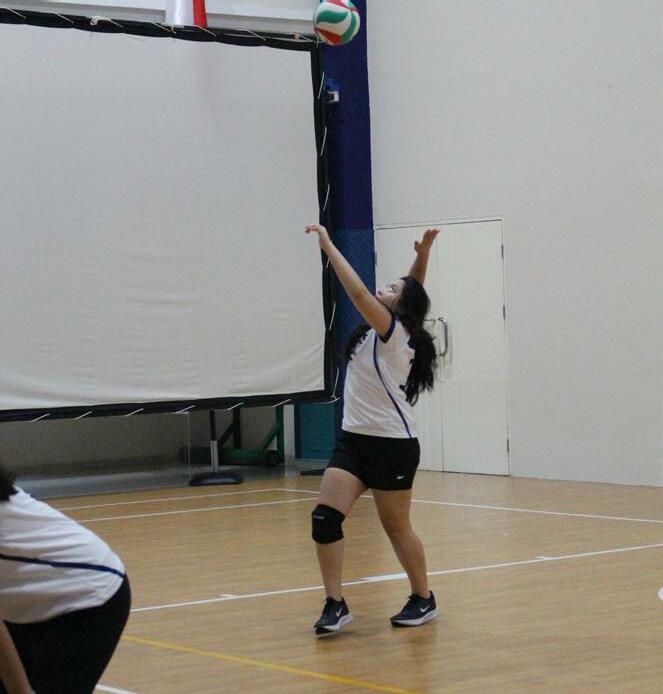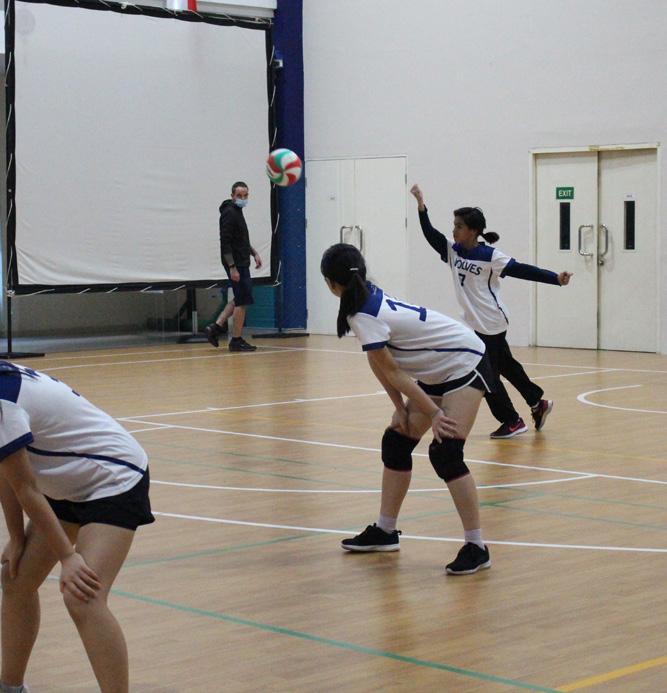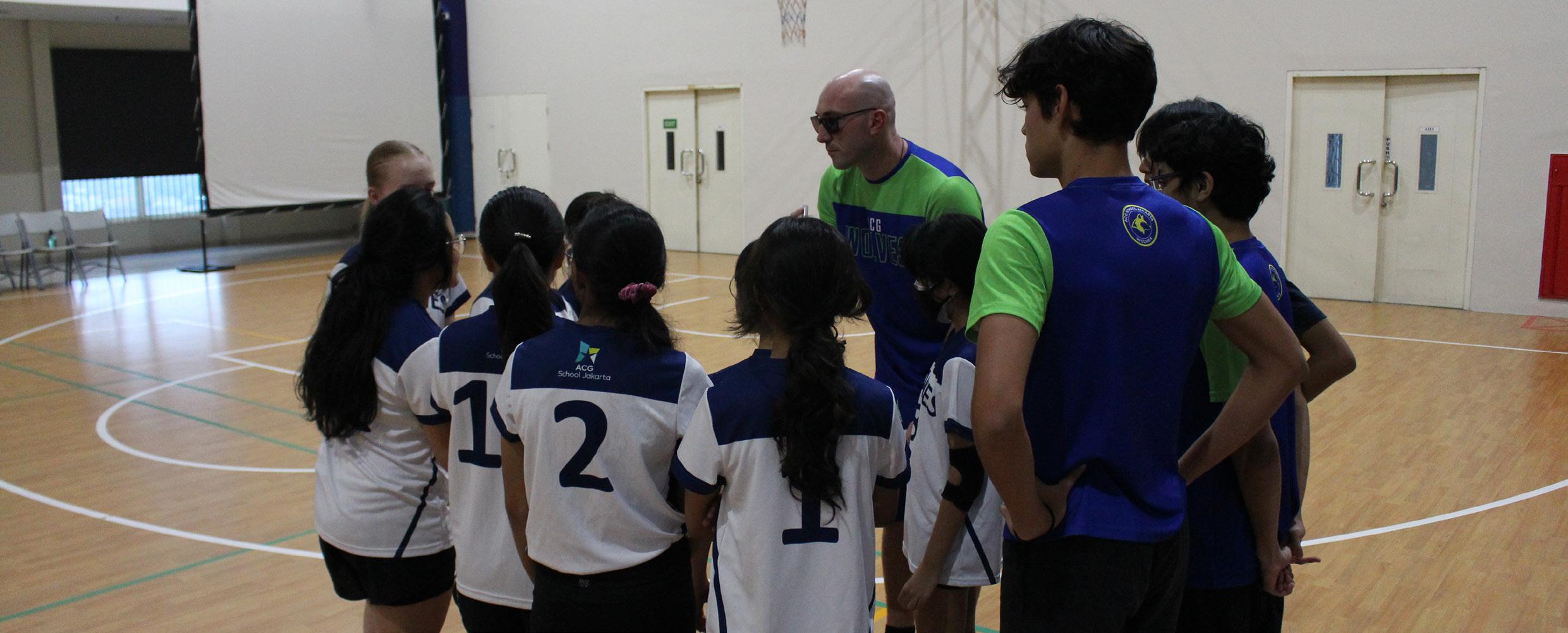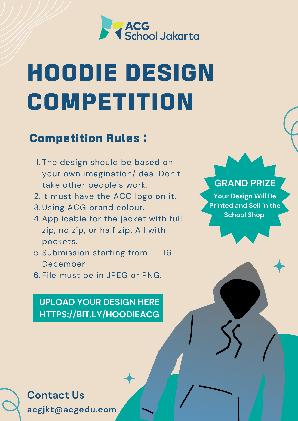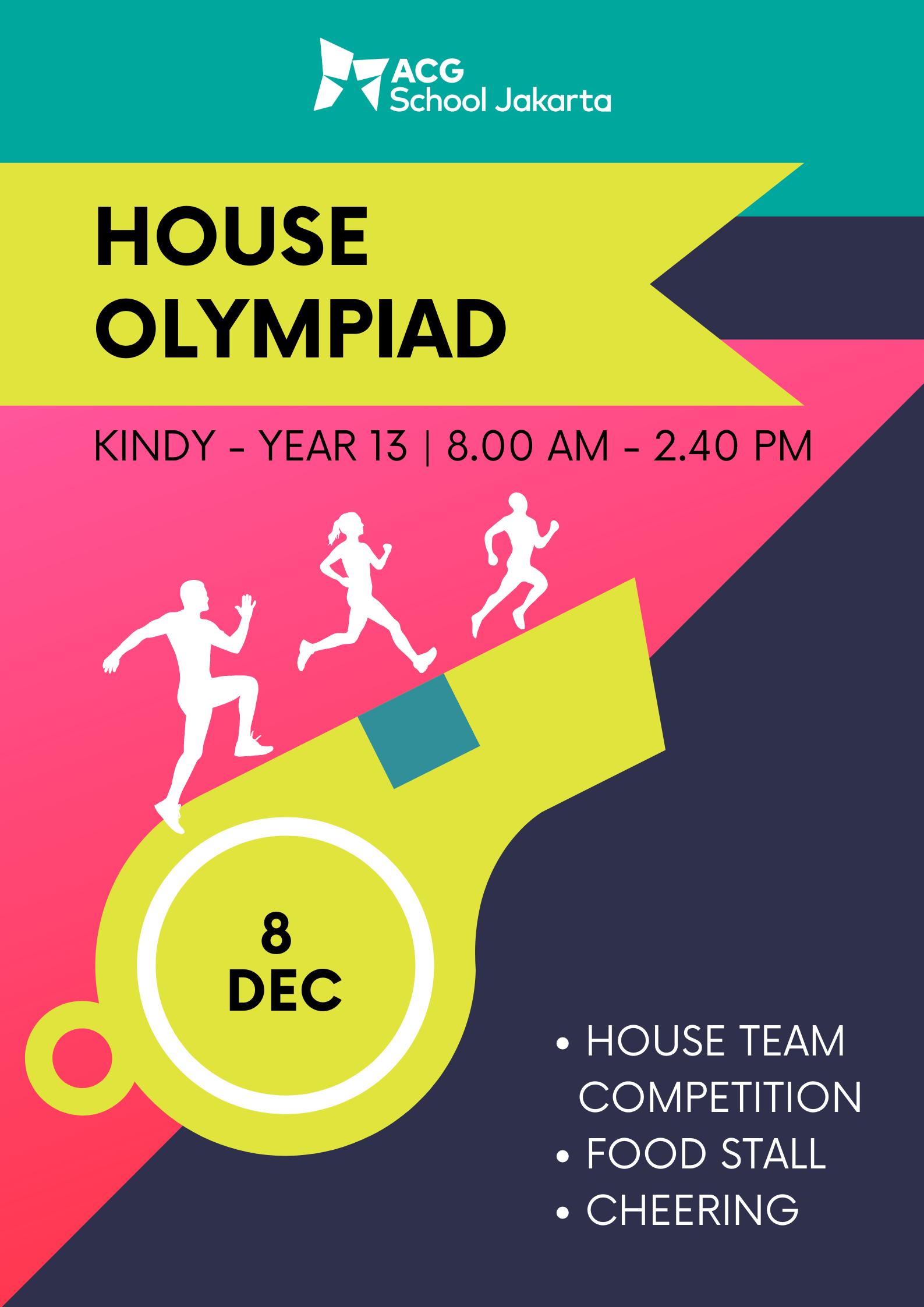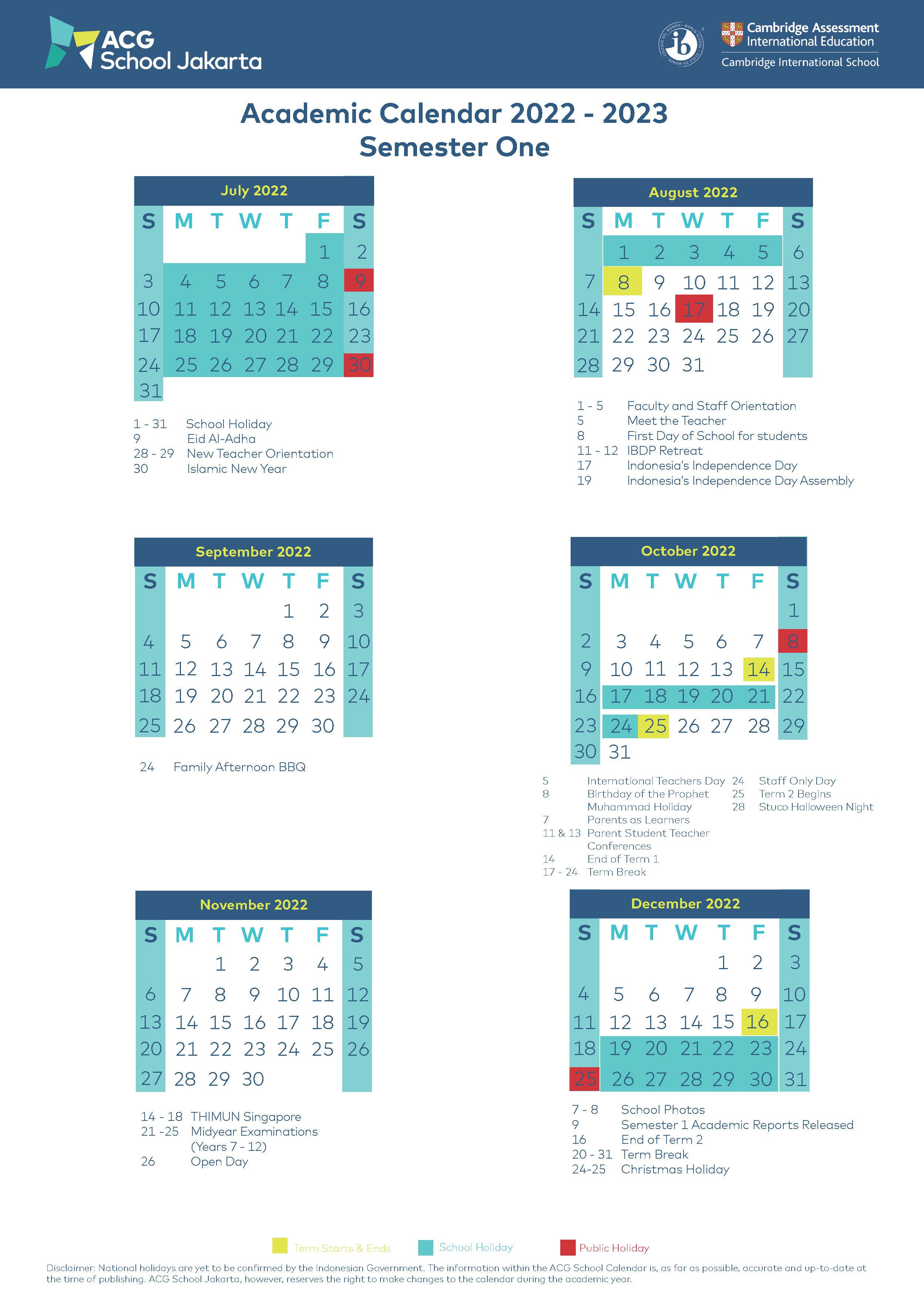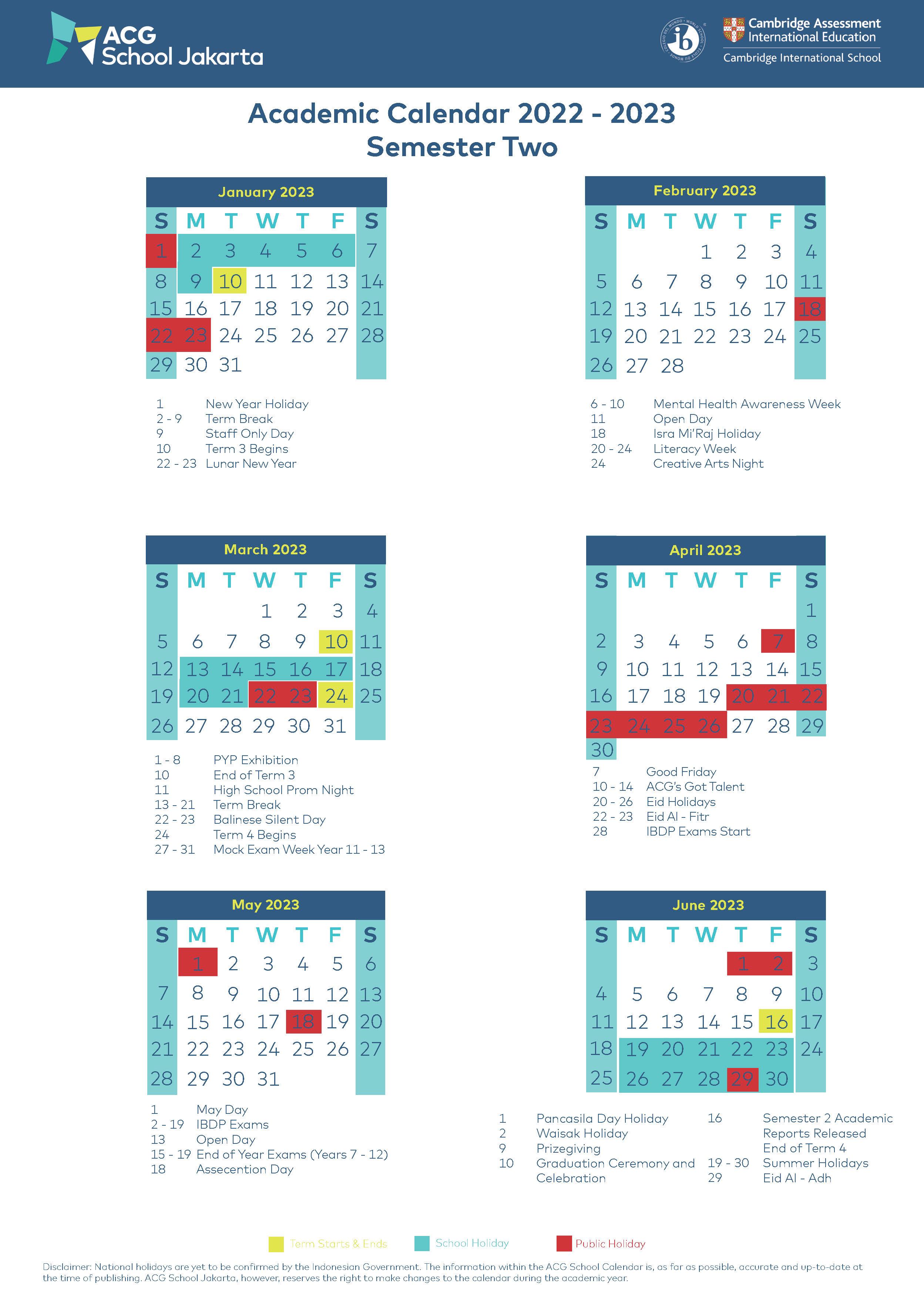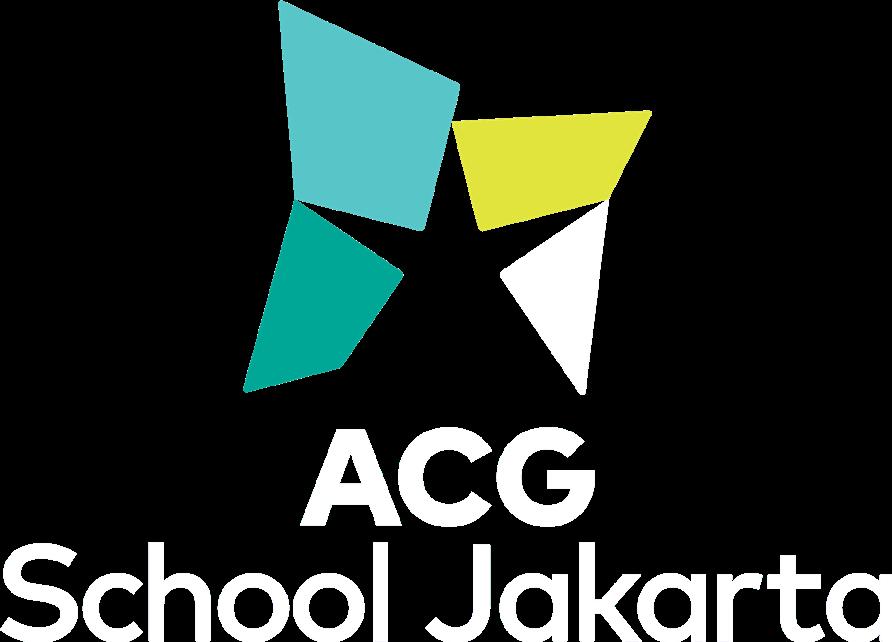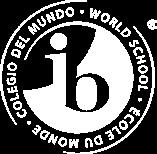The ACG School Jakarta Interactive Newsletter

















What a busy month November has been, as well as being the principal of the school, I have also had to take on the role of Inspector Lot. Investigating the death, possible murder, of Victor Frankenstein (a year 7 unit), required lots of leg work and the Science Dept had a lot of forensic evidence to go through. The press conference was daunting with some hard questions from the ACG News Corporation. Hopefully Year 7 will find out what really happened. Perhaps I will arrest the culprit in the near future.
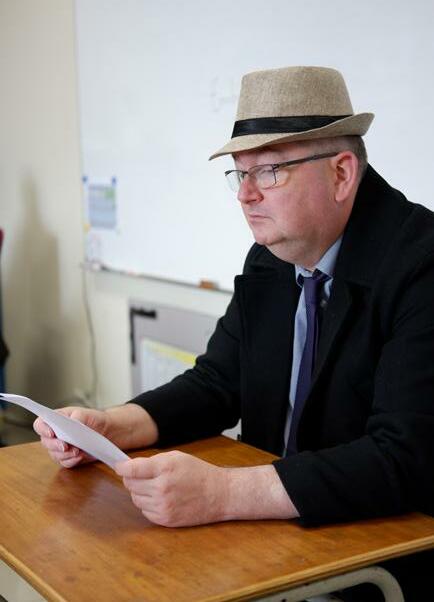
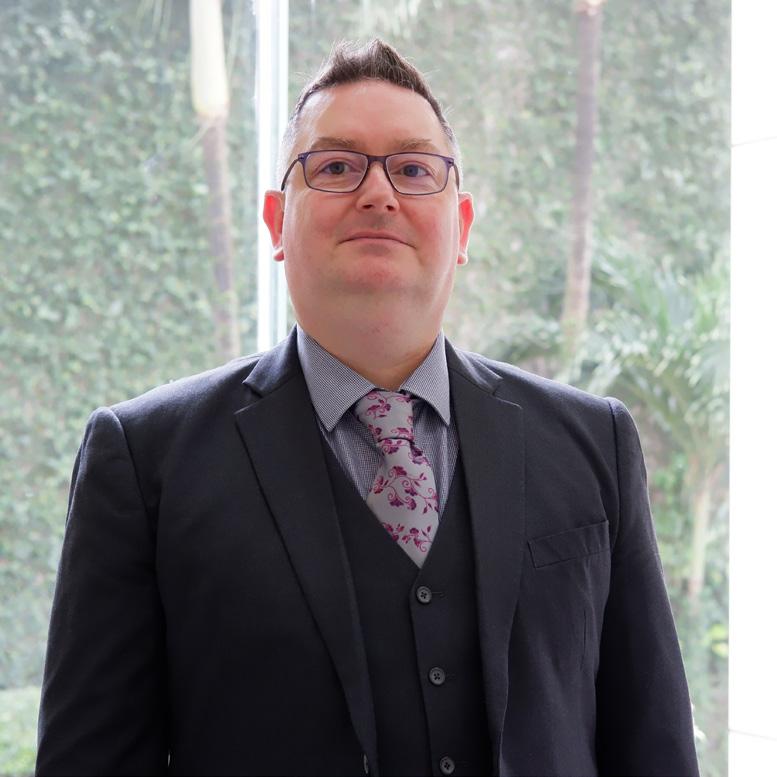
What a busy month November has been, as well as being the principal of the school, I have also had to take on the role of Inspector Lot. Investigating the death, possible murder, of Victor Frankenstein (a year 7 unit), required lots of leg work and the Science Dept had a lot of forensic evidence to go through. The press conference was daunting with some hard questions from the ACG News Corporation. Hopefully Year 7 will find out what really happened. Perhaps I will arrest the culprit in the near future.
We also had our first PYP parent meeting, and a meeting for the Year 13 Parents. It was great to have these groups of parents on campus and we look forward to more meetings in the coming months. We will be hosting the ACG House Olympiad on December 8 which is open to parents who walk in.
As we come to a close on Semester 1 and we look to reports being published in December, it is good to reflect on how amazing it has been to have the students back on campus for this semester and seeing how they are adjusting. Please remember that students of different ages will adjust at different rates, and it is important to recognise that for some it has not being easy, especially in the lower primary where perhaps they have had little chance to socialise. In the upper grades, and especially in Secondary, the students have had to acclimatise to the workload and having proper in person exams. This can be stressful for some students and with our and your support they are making better choices.
I ended the month touring Year 4 and meeting some tireless global explorers, great conversations with James Cook and Amelia Earhart to name a few. There is more to look forward to in December, so please keep an eye out for December’s newsletter, and enjoy the videos to come.
If I don’t see you in December, I would like to wish you all a wonderful end to Semester 1, and please have an amazing holiday
Warm regards
Myles D’Airelle PrincipalDear Parents, Caregivers and Students,
Selda Mansur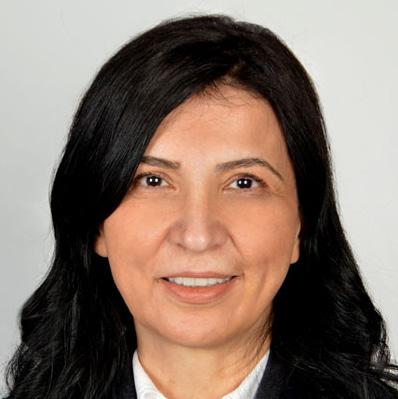
I would like to invite you to take a few minutes to think about an expression that is identified with the Reggio Emilia approach to early years education: ‘Io chi siamo,’ which translates into English as ‘I am who we are’.
Educators all around the world, including PYP practitioners, are inspired by an approach native to the preschools of Reggio Emilia, Italy, where children drive the curriculum. The teacher’s role is that of a facilitator rather than a leader of instruction. It contradicts the traditional ‘tabula rasa’ (clean, empty slate) view of children, as worded by 17th century philosopher John Locke, where children are seen as being born in a blank slate, waiting to be filled with knowledge by other knowledgeable people (teachers, parents, and other adults).
The ‘play pedagogy’ of the Reggio approach, on the other hand, views children as innately rich, powerful, competent , active learners, protagonists in their own learning and knowledge, subjects of individual and social rights, ready and able to assume their own voice, make their own informed choices, and take ownership of their own learning and actions.
‘Io chi siamo’ brings to mind a cooperative and communicative activity of learners forming a community. Examples of this approach in our school can be found in the active role our Student Council assumes in the life of our school, as well as the essential agreements PYP classes create for themselves and by themselves, with the teacher serving as a facilitator. They decide on their own code of conduct for social interaction in a safe and pleasant environment as a community, and revise the agreements if and when necessary. They take ownership of what compassionate rules to abide by, rather than being dictated how to engage with others in their community.
We, ACG School Jakarta educators, also create, review and revise similar essential agreements in the form of school policies. Currently, we are working in small groups to review and update as necessary, our current Language, Assessment, Admission and Inclusion Policies. As members of the school academic leadership team, our school principal who is also the head of academic programmes, myself in my dual role as vice-principal and PYP coordinator, and our DP coordinator, facilitate the process for the teaching and administrative staff, but do not dictate how the work is done. When the policies are updated, it will be the result of collaborative inquiry, owned by the whole team.
Dear Parents and Caregivers, “Children see, children do”. Do you see this kind of ownership of your family rules in your children? Do you give them the chance to show you? To what extent do they have voice, choice and ownership of what binds your family members? This is what we will be discussing in our next PYP Parents Programme meeting on 6 December, Tuesday. Please do join us, even if you are not a parent in our primary school, but have children in our secondary.
Dear Students, what does ‘Io chi siamo’ mean to you in the context of school and family life? Do you expect adults to tell you what to do and what not to do and only react to their rules, or do you assume a pro-active and responsible role as a member of your family, and as a student member of the school community? What you do now, is a likely sign of what you will do as an adult member of the society. Better awareness of what it means to be a responsible member of society, is likely to help you live a fuller, richer life.
Selda Mansur Vice principal and PYP coordinator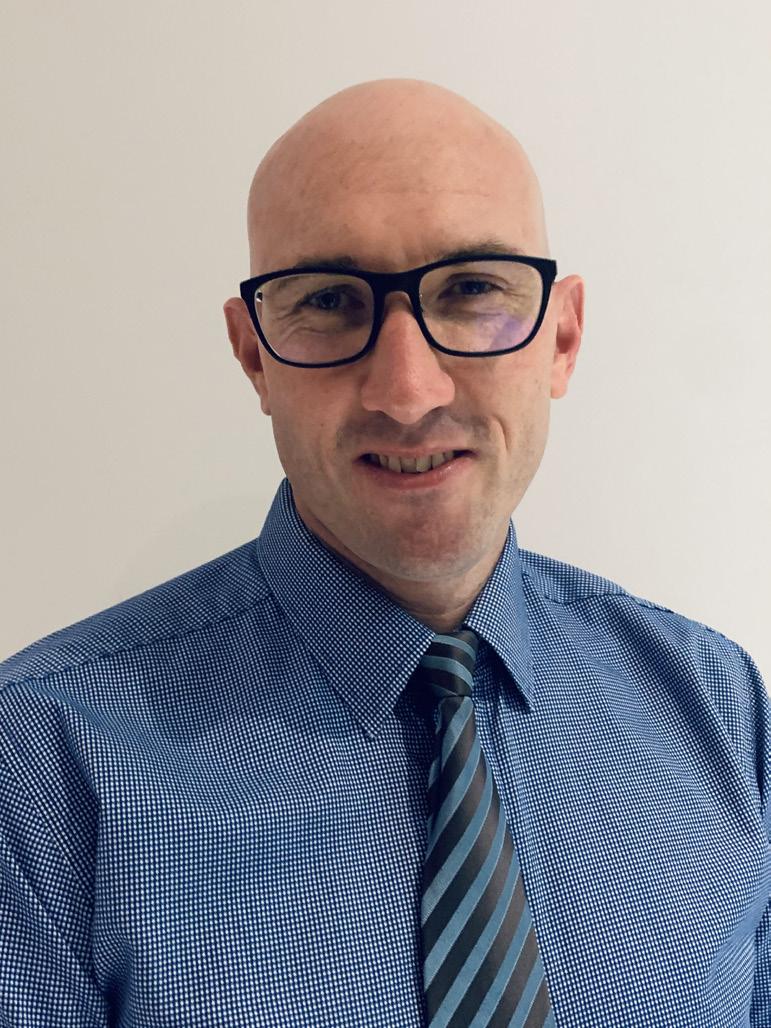
Dear Parents, Caregivers and Students,
Kieran PascoeThe busy time has officially started for our DP students! Both Year 12 and 13 had a big week sitting their Mid-Year Examinations. Although it’s a stressful time for them, this will be a valuable learning experience in preparation for their final IB examinations. We hope to see some positive results when the marks are tabulated. The Group 4 Science Project is also coming up at the end of the term, and we’re all excited to see the upcoming science experiments.
Year 12:
The Year 12 DP students have started their Extended Essay planning, which is an important part of the Diploma Program. Students choose a topic of interest, formulate a research question, research then write a 4,000-word essay. They are currently choosing a teacher supervisor who will guide and support them in this task. I wish the students the best of luck with their preparations.
Year 13:
The Year 13 students are entering the most challenging period of their 2-year program. They have to juggle their various Internal Assessments for each subject, writing their Extended Essays, classwork, as well as preparing for next year’s examinations. The students will have to put in a great deal of time and effort, and our teachers and staff will do our best to support them. There is a Calendar of Deadlines that students are following, which is designed to stagger their Internal Assessment due dates, in order to spread out their workload. It is important that they adhere to the due dates in order to give them the best chance of success and also to reduce stress. The DP teachers or I will contact parents if any student does not meet a deadline or if we have any concerns about their progress.
Please contact me or your child’s teachers if you have any issues or questions about their program.
PascoeAs an IB PYP (International Baccalaureate Primary Years Programme) World School, we view “partnerships with parents and legal guardians as benefitting the students and value the perspectives they bring to the learning community. The partnerships between home and school provide the foundation to support students’ learning, growth, health and well-being and agency”.
To that end, we are organizing monthly meetings to further involve you in your child’s education. Each month, we focus on one aspect of the PYP.
On 8 November Tuesday, our focus was the IB Learner profile. You can access a video recording of the event on the link at the bottom page and the visual below.
Our next meeting will take place on 6th December 2022, Tuesday, between 15.00-16.00. This time we will be inquiring into ‘Learner agency: Voice, choice and ownership’
IB informs us that “Conceptualized by Bandura in social cognitive theory, agency “enable[s] people to play a part in their self-development, adaptation, and self-renewal with changing times” (Bandura 2001).

PYP students with agency use their own initiative and will, and take responsibility and ownership of their learning. They direct their learning with a strong sense of identity and selfbelief, and in conjunction with others, thereby building a sense of community and awareness of the opinions, values and needs of others.” (“The learner” in PYP: From principles into practise, International Baccalaureate, 2018)
And that in the PYP,
• “Students have voice, choice and ownership for their own learning.
• When students’ have agency, the relationship between the teacher and students becomes a partnership.
• Students with a strong sense of self-efficacy bring a stronger sense of agency to the learning community.
• The learning community supports agency and fosters self-efficacy.
A school with a focus on agency considers its perceptions of how children learn, children’s capabilities and the overall value of childhood. When teachers consider their beliefs around children’s identities and rights, they are examining personal beliefs, theories, cultural backgrounds and values. For example, the teachers’ beliefs and values will influence their choices of how to allocate time, how to set up learning spaces, choose and arrange materials and foster relationships within the classroom and the broader community.”
Following this approach, during our parent programme session on ‘Learner agency: Voice,
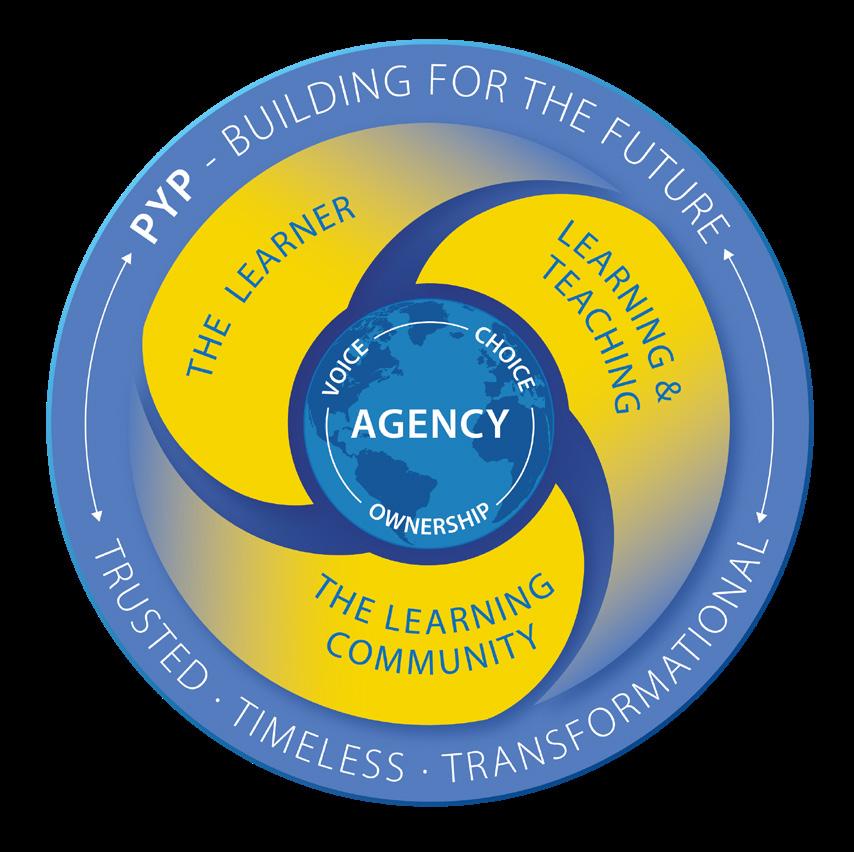
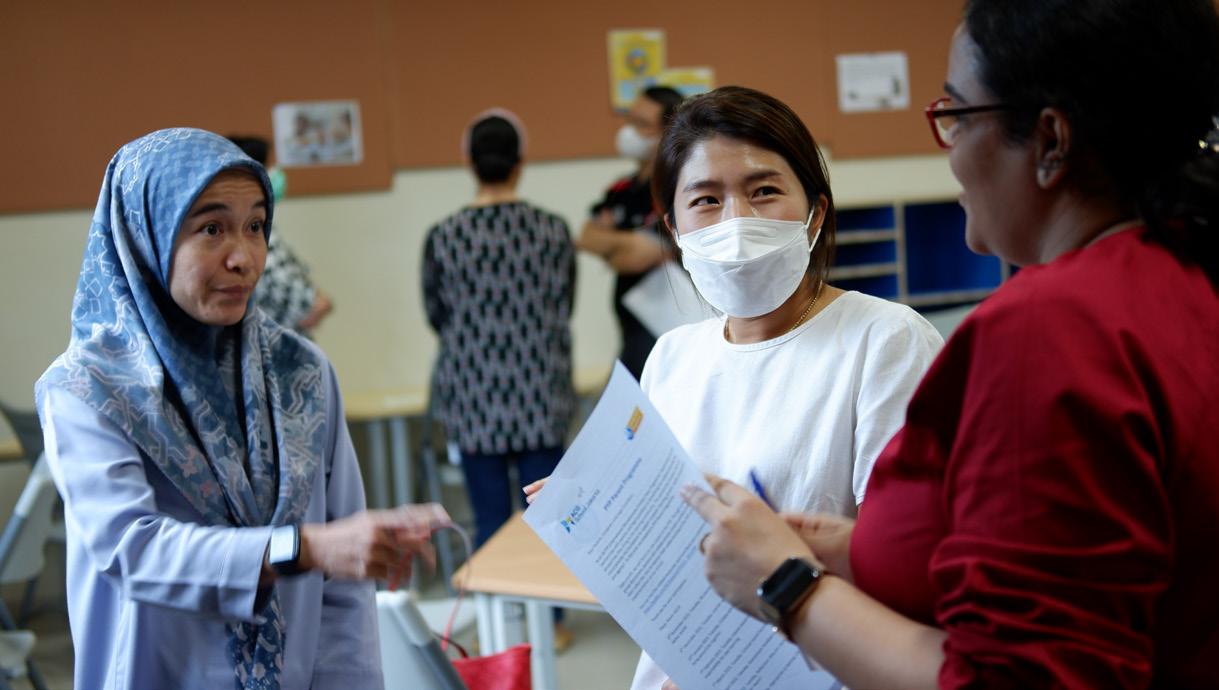
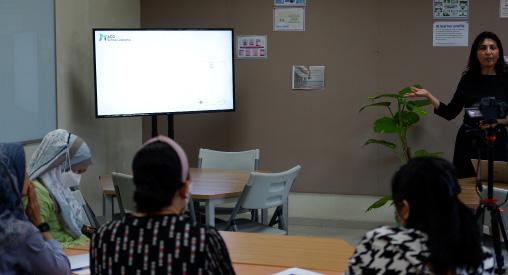
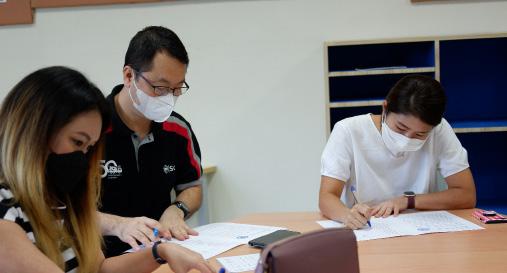
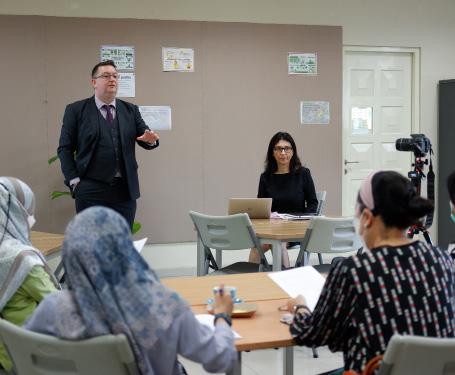
choice and ownership’, we will consider how parents’ personal beliefs, childhood experiences and values influence their parenting choices, and as a result, their relationships within the family and the broader community. We will be asking ourselves, to what extent children have voice, choice and ownership for their actions within their family context.
We look forward to your active participation in the meeting, and if that is not possible, you can always view the recording afterwards.

Throughout November, we continued with our preparations for our upcoming IB PYP and DP evaluation in 2023-2024 school year, when ACG School Jakarta will be evaluated to ensure that the standards and practices of its IB programmes are being maintained. As part of the process, the school engages in a self-study that is a key element in the school’s continual improvement.
“The outcome of a well-planned programme evaluation can be
• renewed enthusiasm for the IB programmes,
• insights that guide strategic planning
• and, ultimately, a better learning experience for students.” (Source: ‘Organizing programme evaluation in your school’, International Baccalaureate)
“The programme standards and practices are organized into four overarching categories: purpose, environment, culture and learning. The four categories fit into a framework, which places “learning” at the centre and is encircled by IB philosophy and the school’s unique context. The framework describes the school community’s processes of design, development, and evolution. The framework assumes that the IB philosophy manifests in each school’s unique context, and that each of the framework’s elements are interdependent: no part of the framework can be developed without considering how other elements relate to it. The framework helps to explain both the successes and the challenges schools face when developing IB programmes.
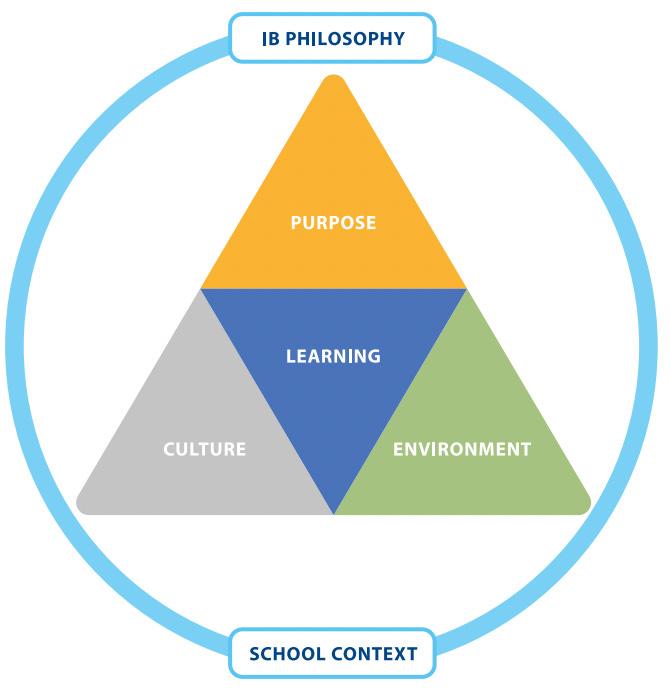
The framework is comprehensive and places learning at the heart of an IB World School community that:
• successfully integrates the IB philosophy within their school’s unique context
• shares a purpose with the IB’s mission that builds into a solid approach to education
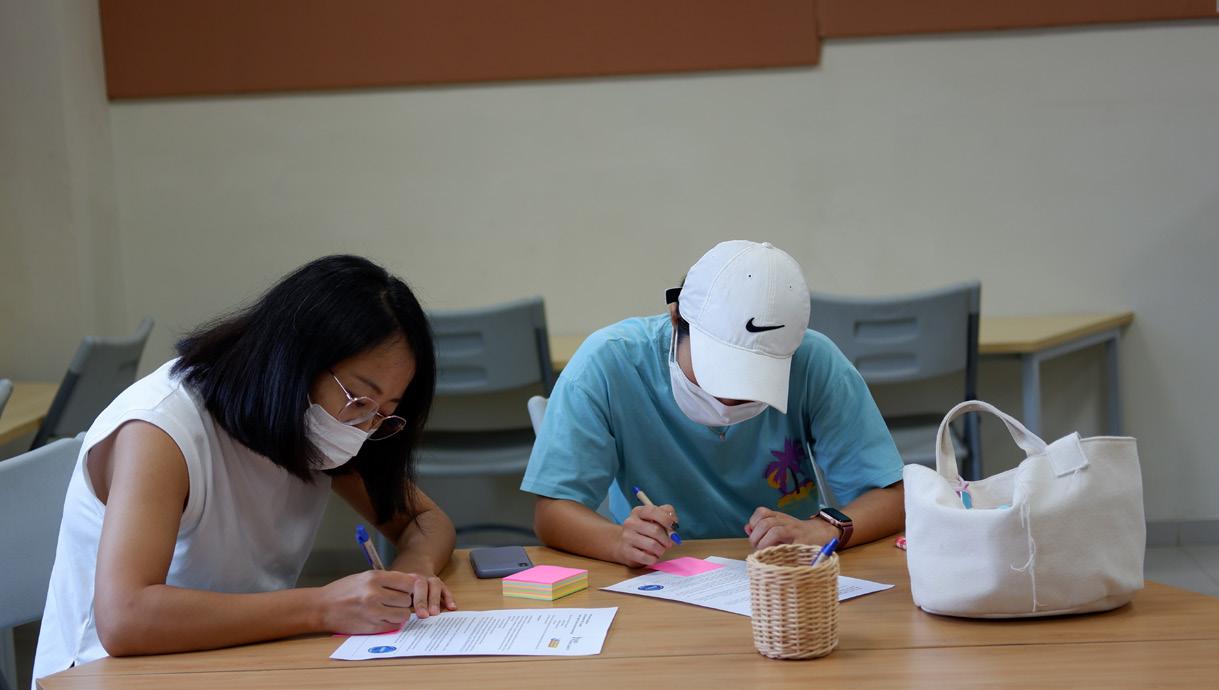
• develops a learning environment sustained by effective structures, organizational practice and resources
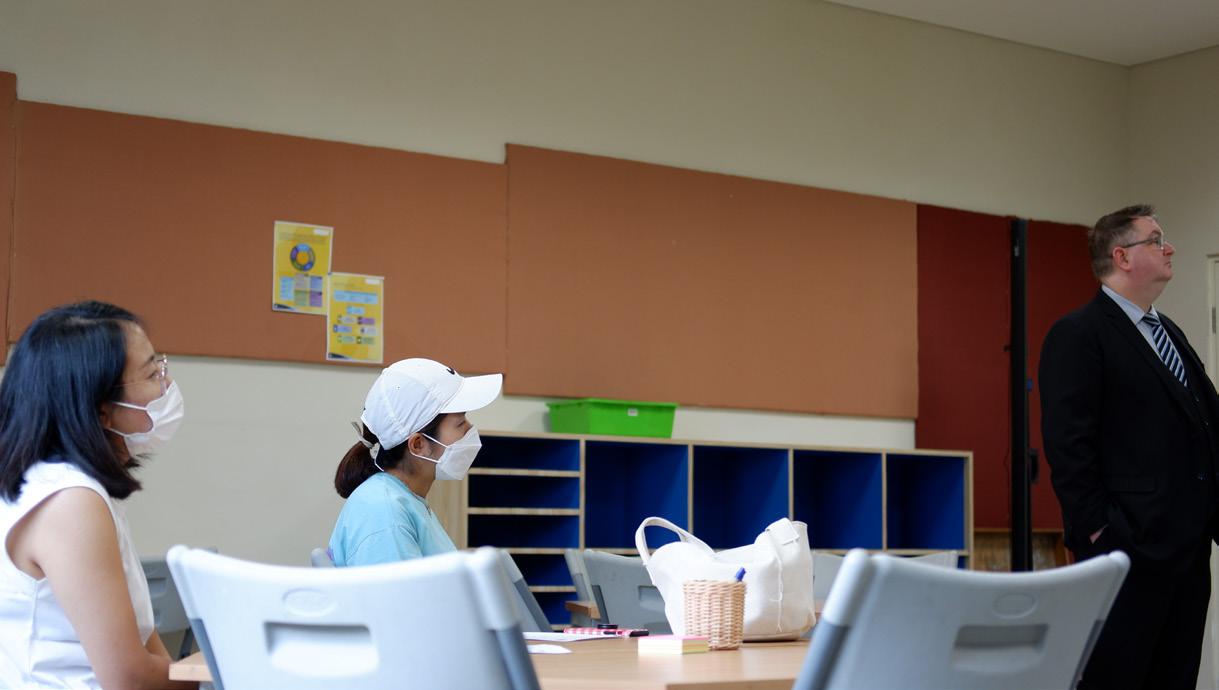
• fosters a dynamic school culture centred on holistic, inclusive learning communities • positively influences local, national and international contexts
• creates student learning experiences of the highest quality possible. The school community, with the IB, co-creates high-quality education that makes a better world.” (Programme standards and practices, IB, 2020)
On 7 December, self-study groups and steering committees will share their progress at our weekly Whole Staff Meeting, in the form of answers to these questions:
• What questions does the school need to answer?
• What challenges is the school facing?
• What goal should the school want to achieve?
• What needs to change for students?
In the coming months, these groups will continue their school self-assessment work, and will also be reaching out to other members of our school community, students and parents, to ensure they, too, have a voice, choice and ownership for the process.
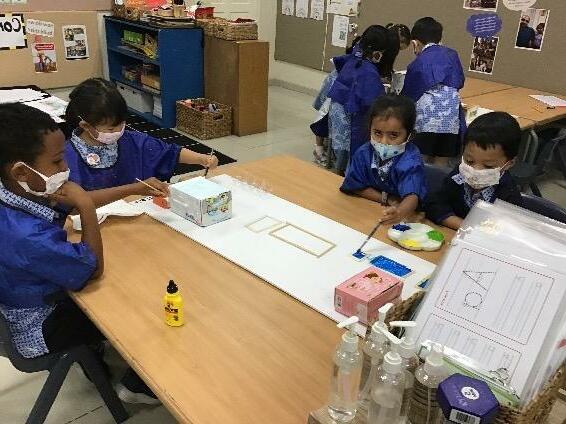
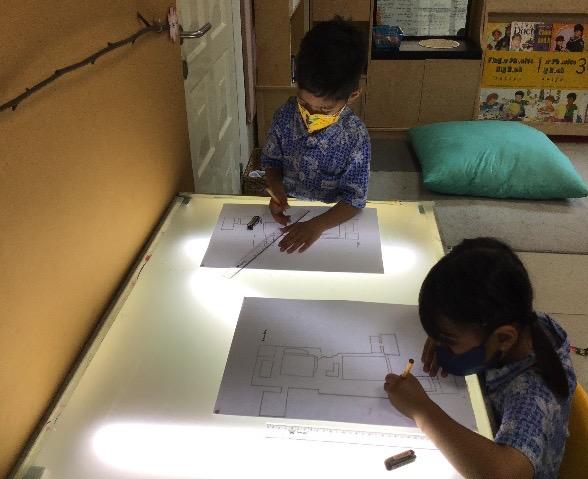
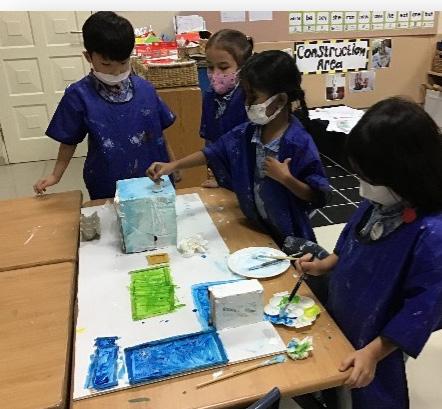
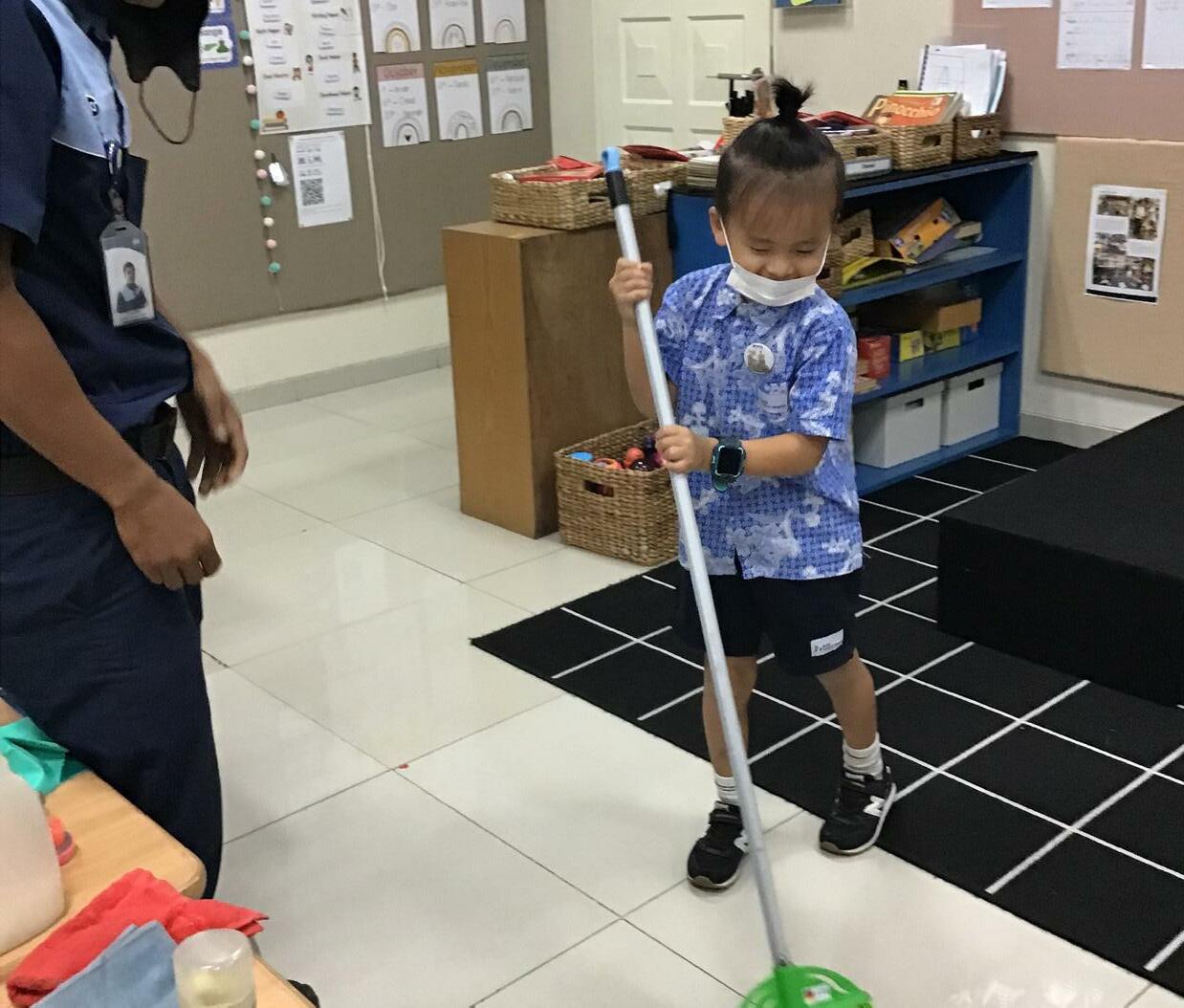
The student’s current UOI was to identify “The Community” and understand how the school’s people work together to form part of a realistic environment. In addition, the students interviewed the staff and understood how they play a role in the operations in the classroom.
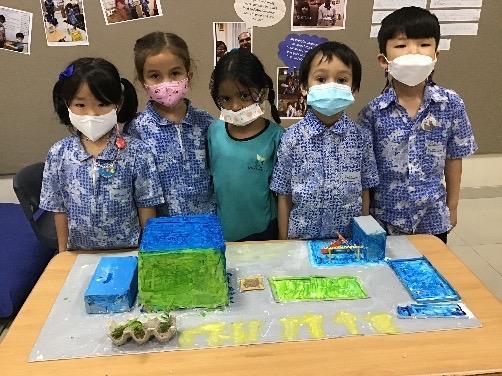

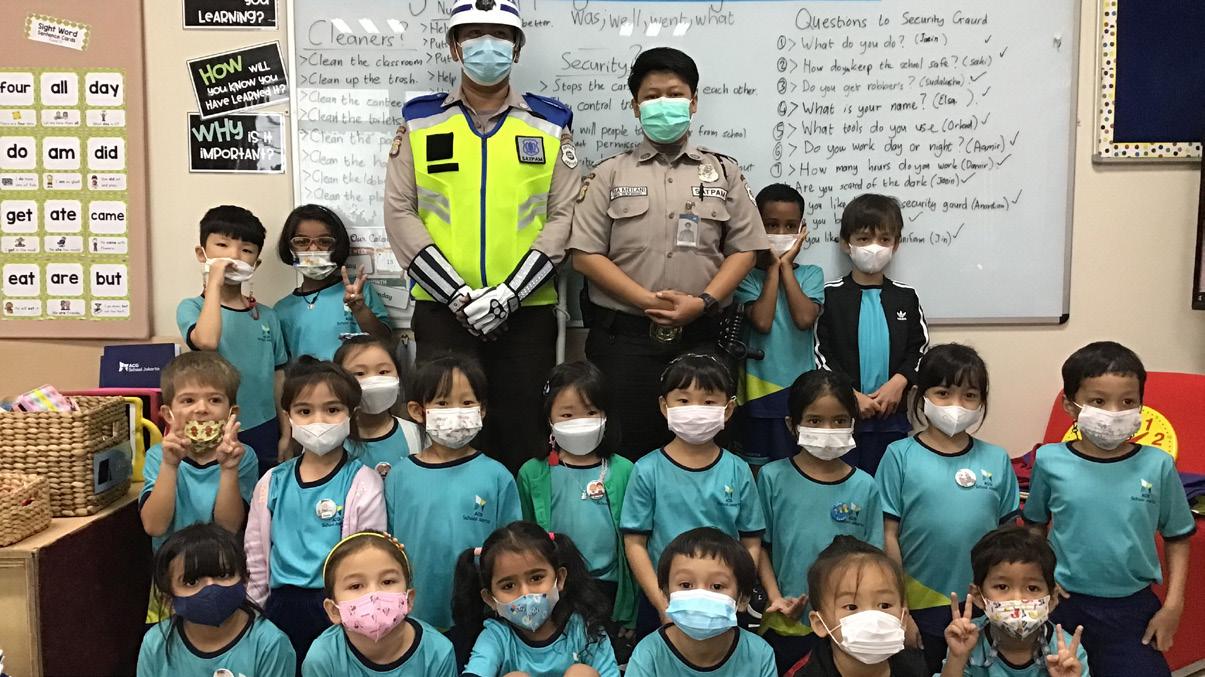
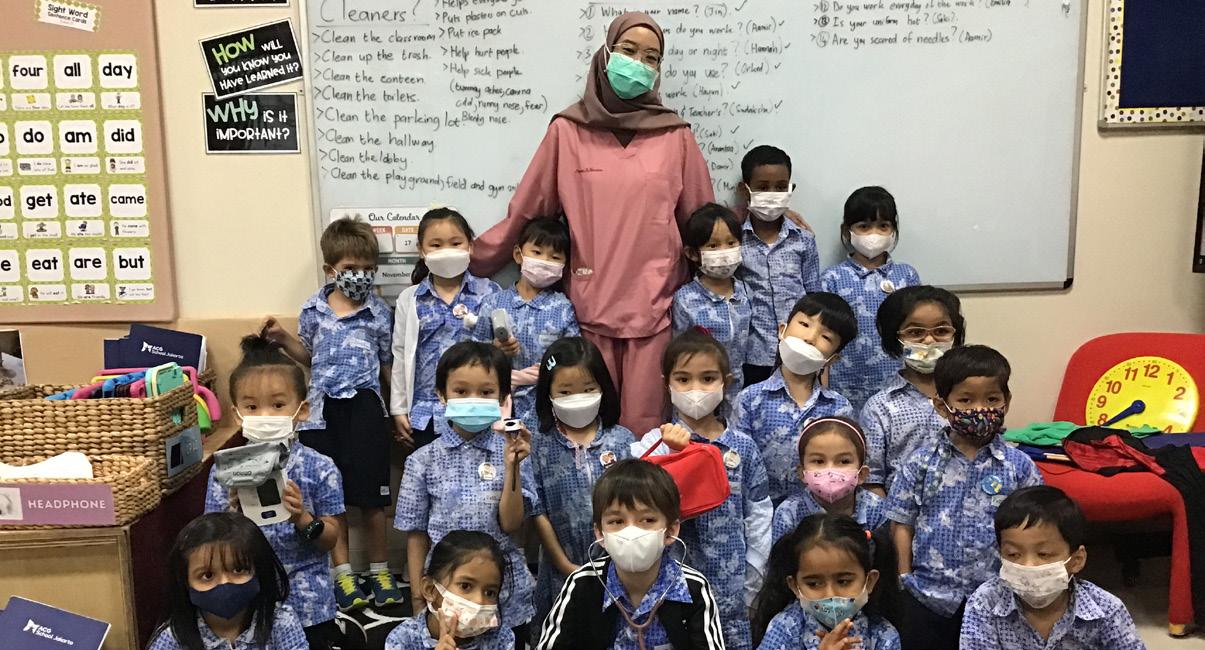
The students embarked on a project where they were tasked to build a Model of our school. The students had to go through various processes. From initial drawing and tracing an outline of the school. The students were taken for a walk around the school to understand the designs and shapes involved as well as colours. The students were to build the Model out of recyclable material.
more photograph of the activity here


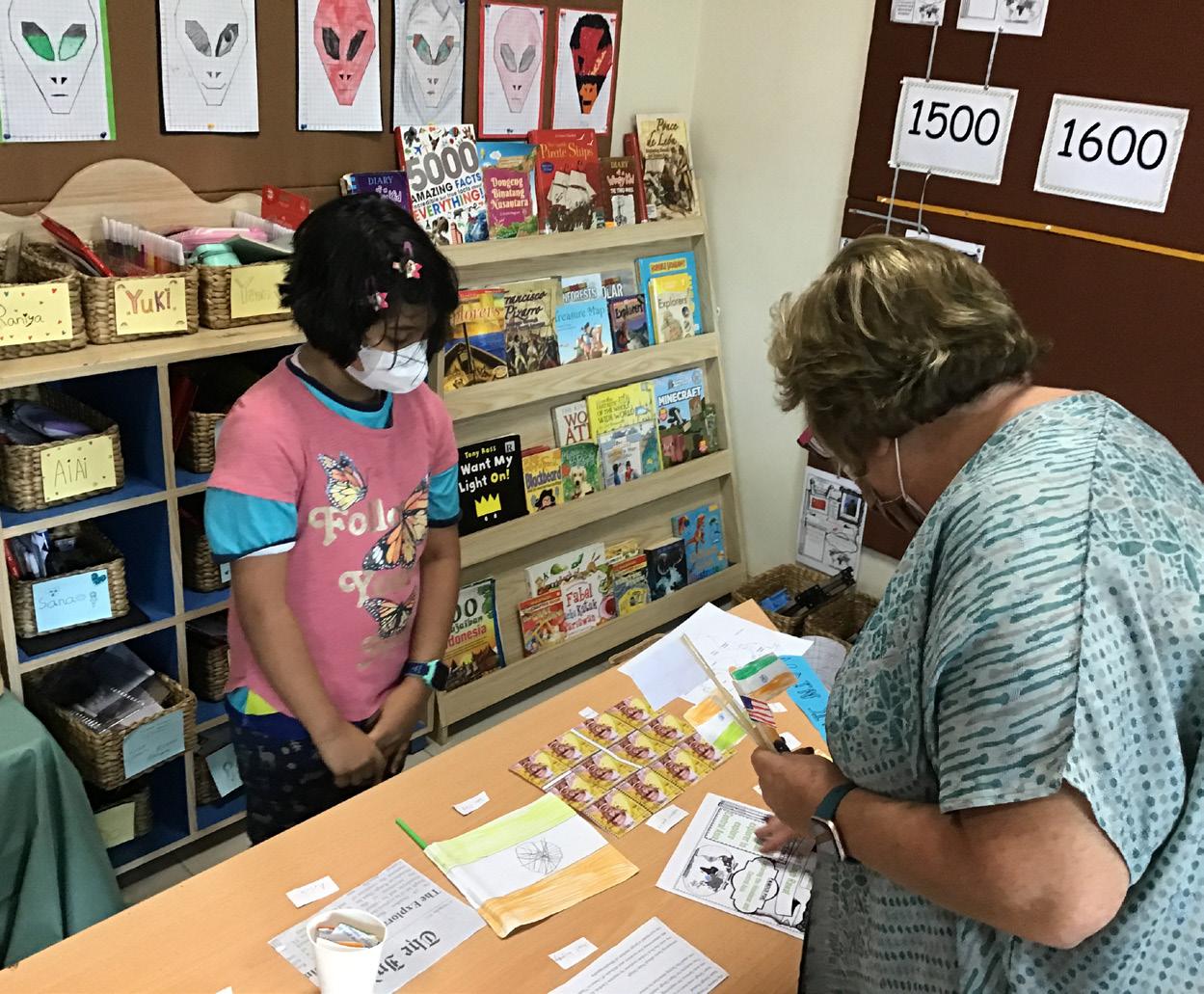
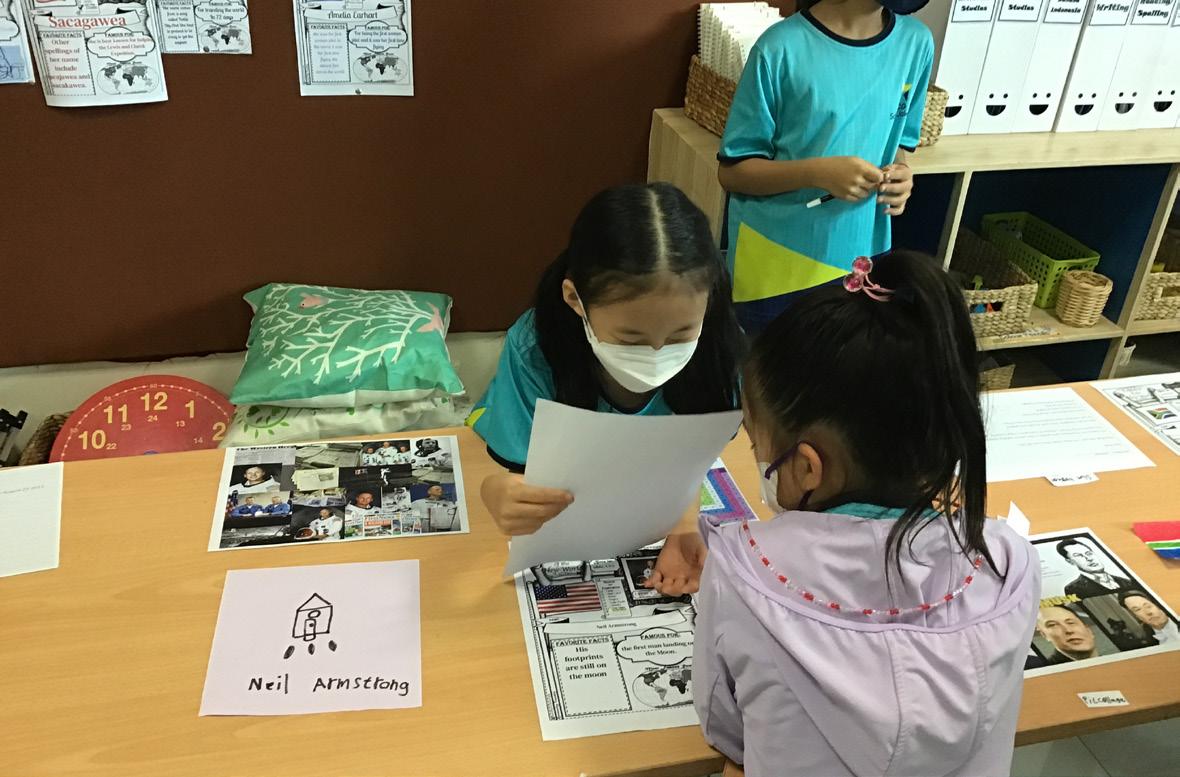
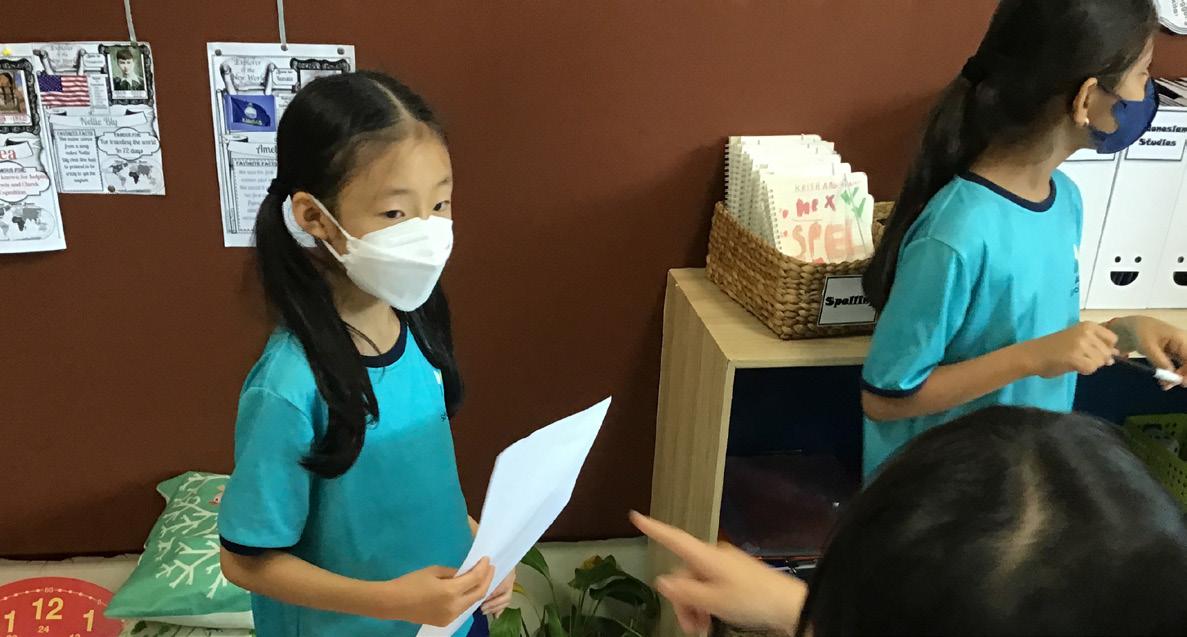

For two weeks in November, the Year 4 students excitedly prepared for their living museum. To end their unit on Where We Are in Place and Time, students researched an explorer and prepared a presentation to share their explorer’s purpose, important discoveries and navigational tools. Some explorer selections included Captain James Cook, Amelia Earhart and Vincent da Gama. The living museum was attended by Year 3 and Year 5 students, as well as Mr. Myles and Ms. Selda. Every student shared their knowledge about their explorer with confidence and enthusiasm. See more photograph of the activity here
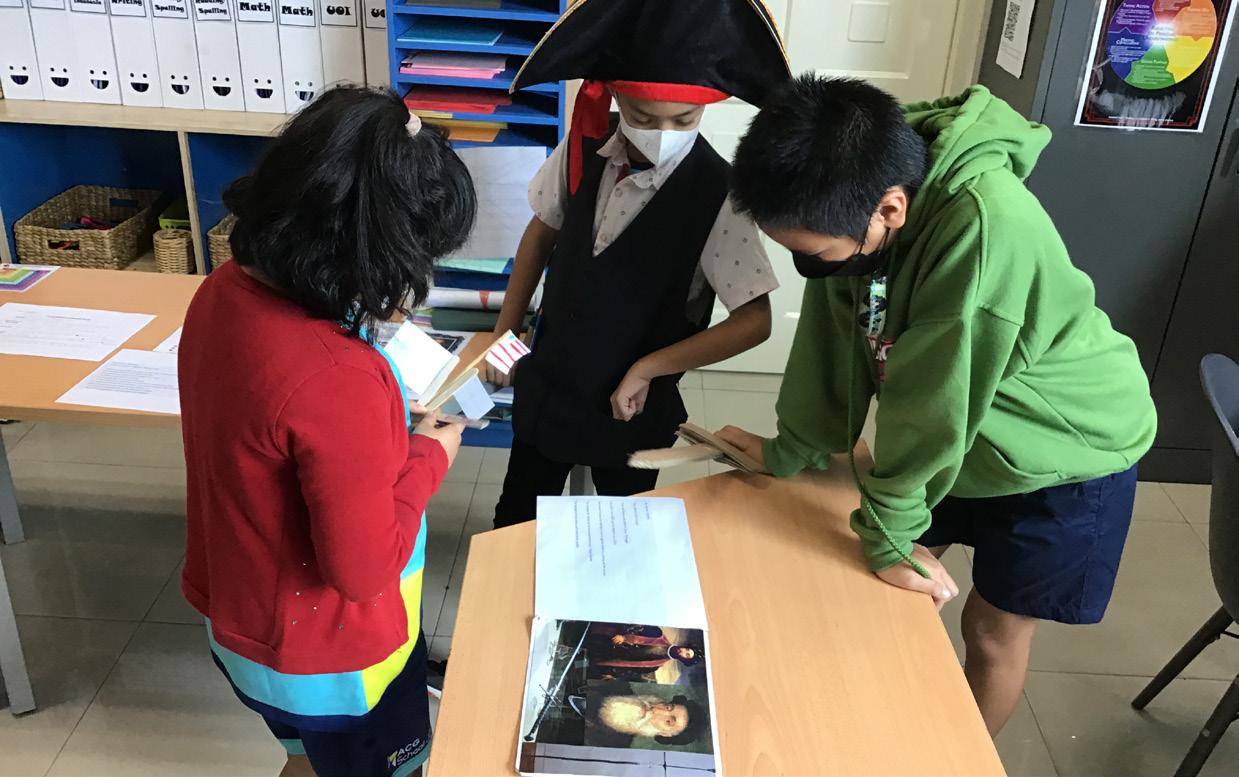
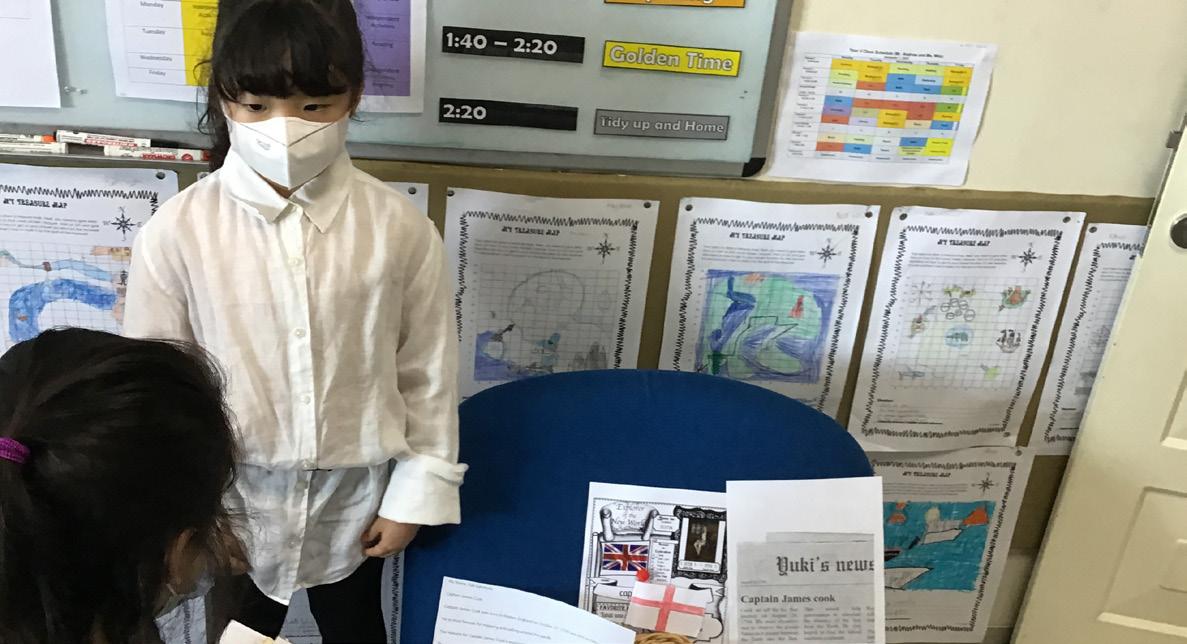
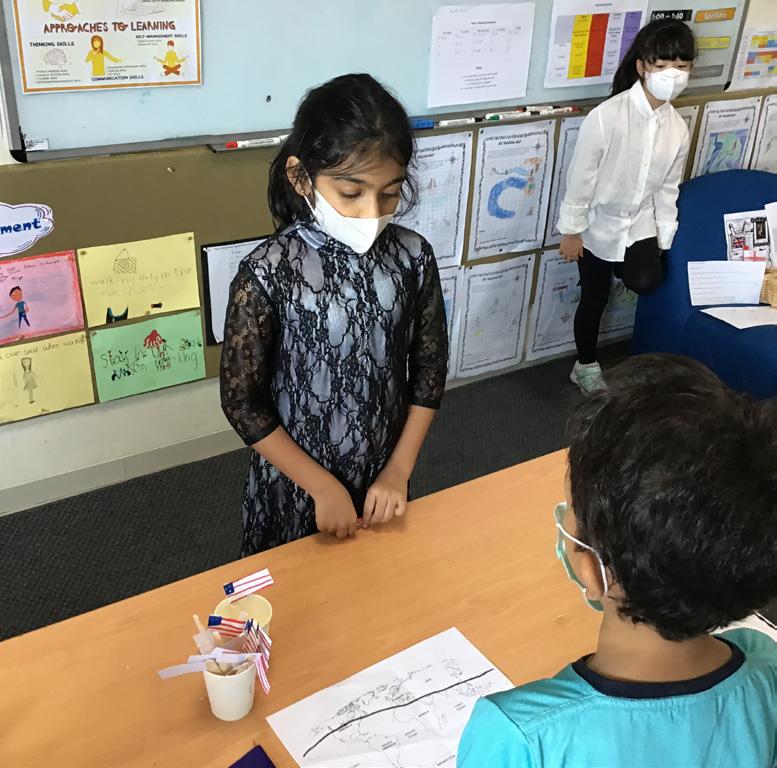
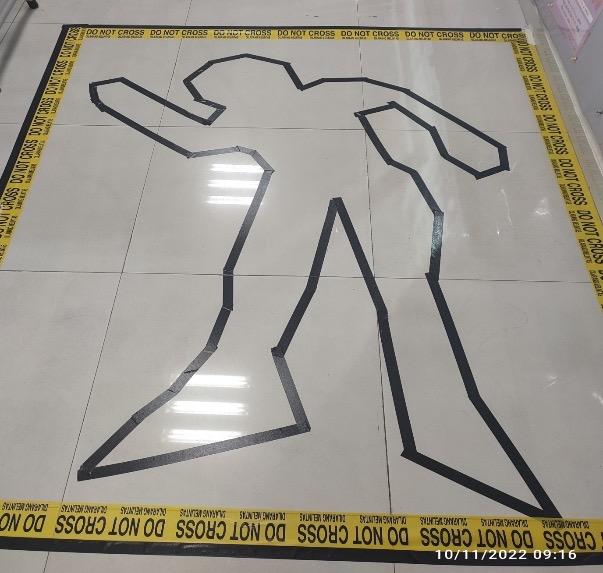
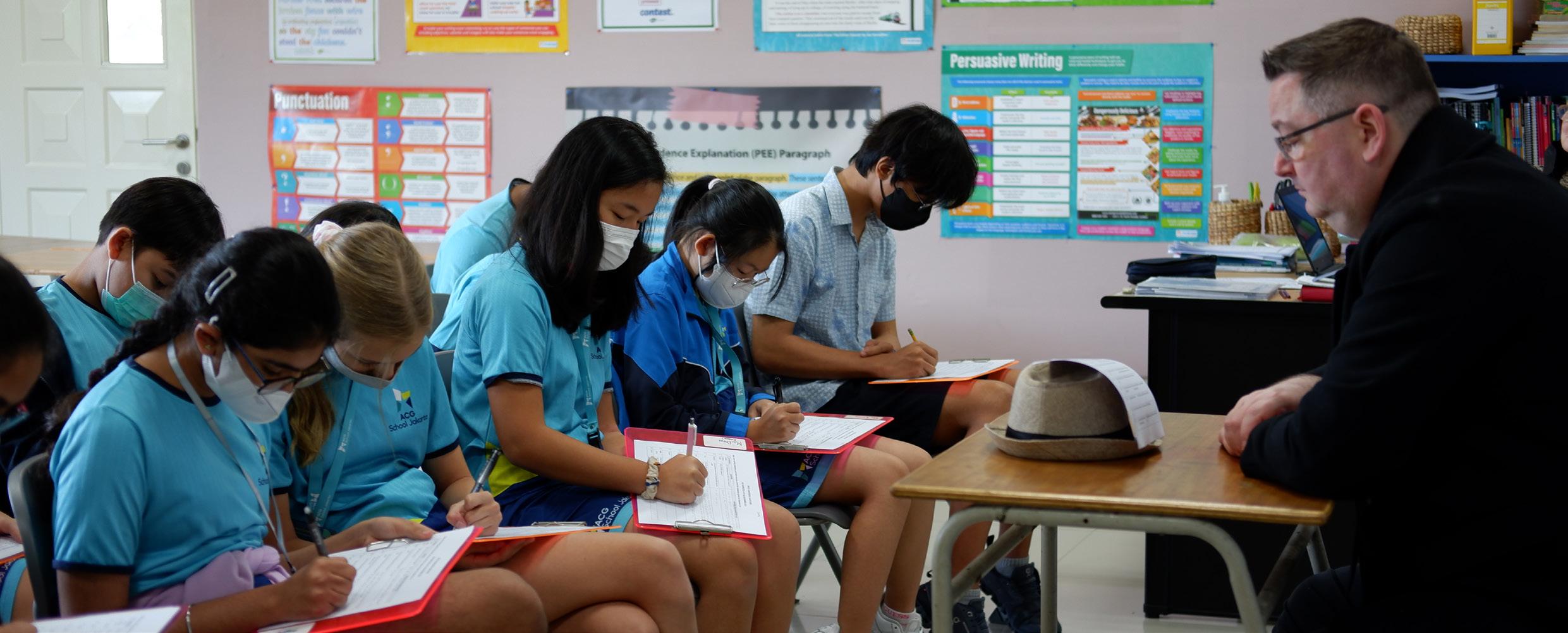
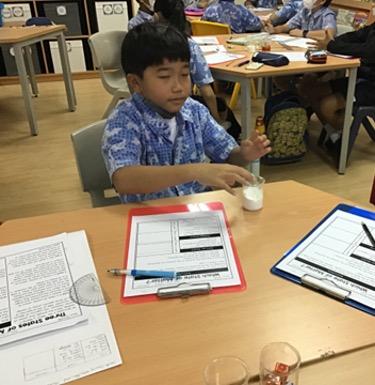
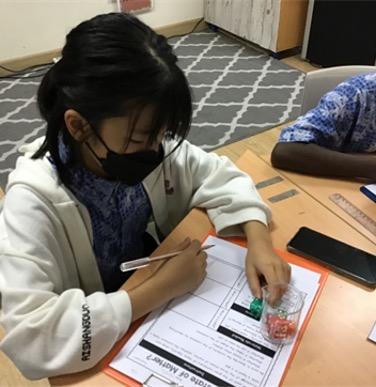
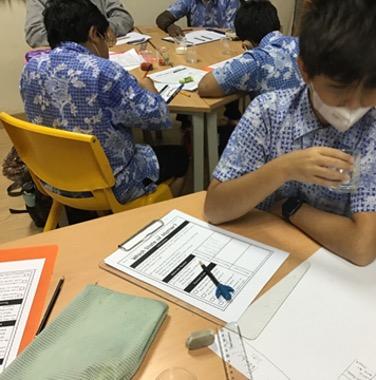
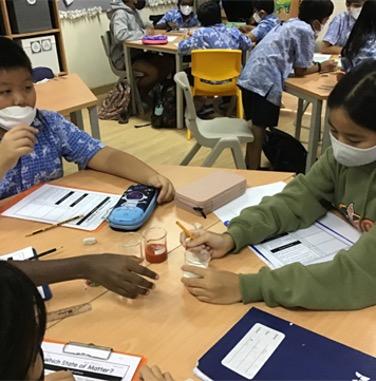
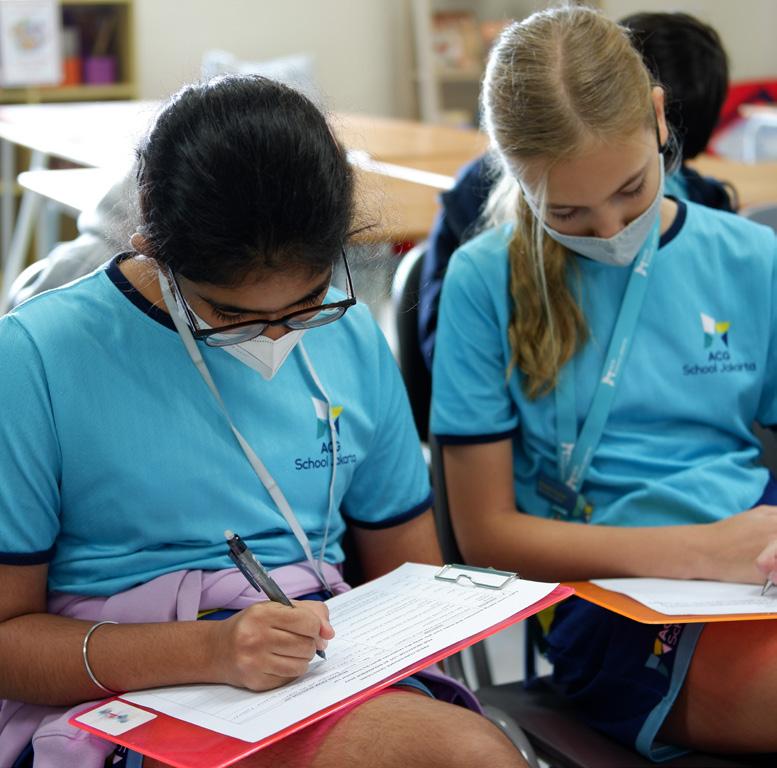
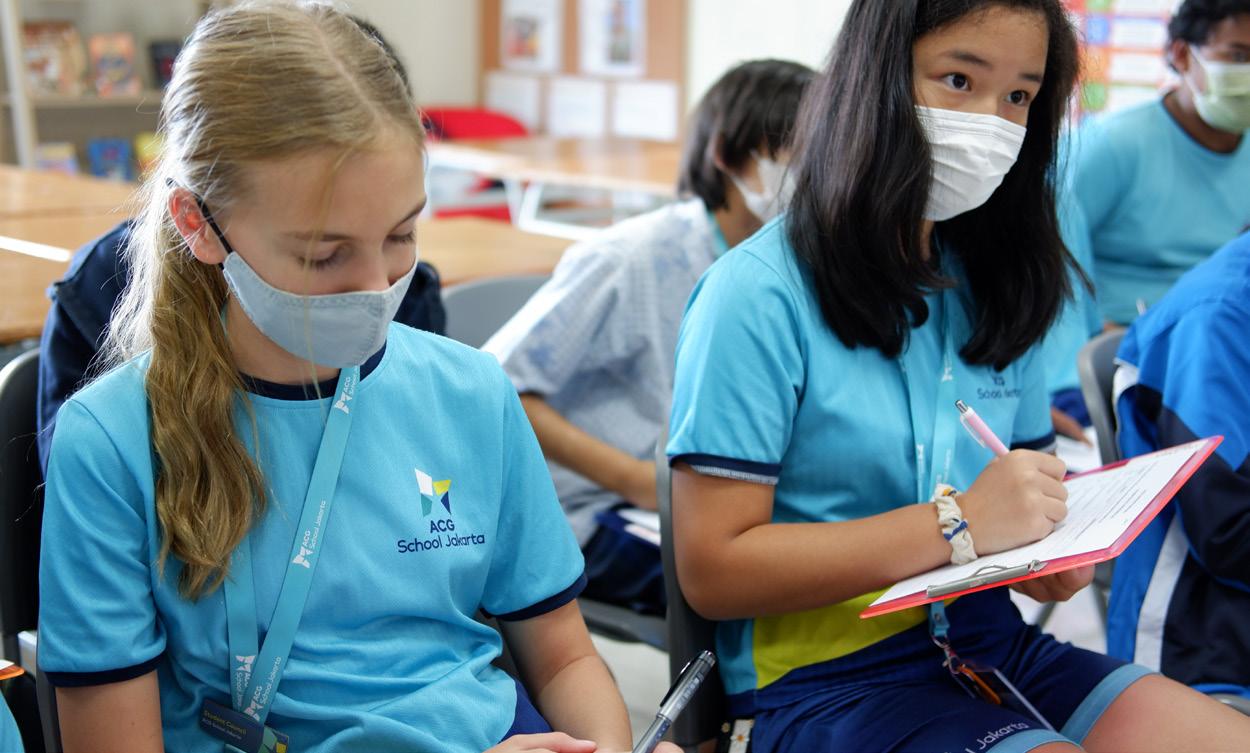
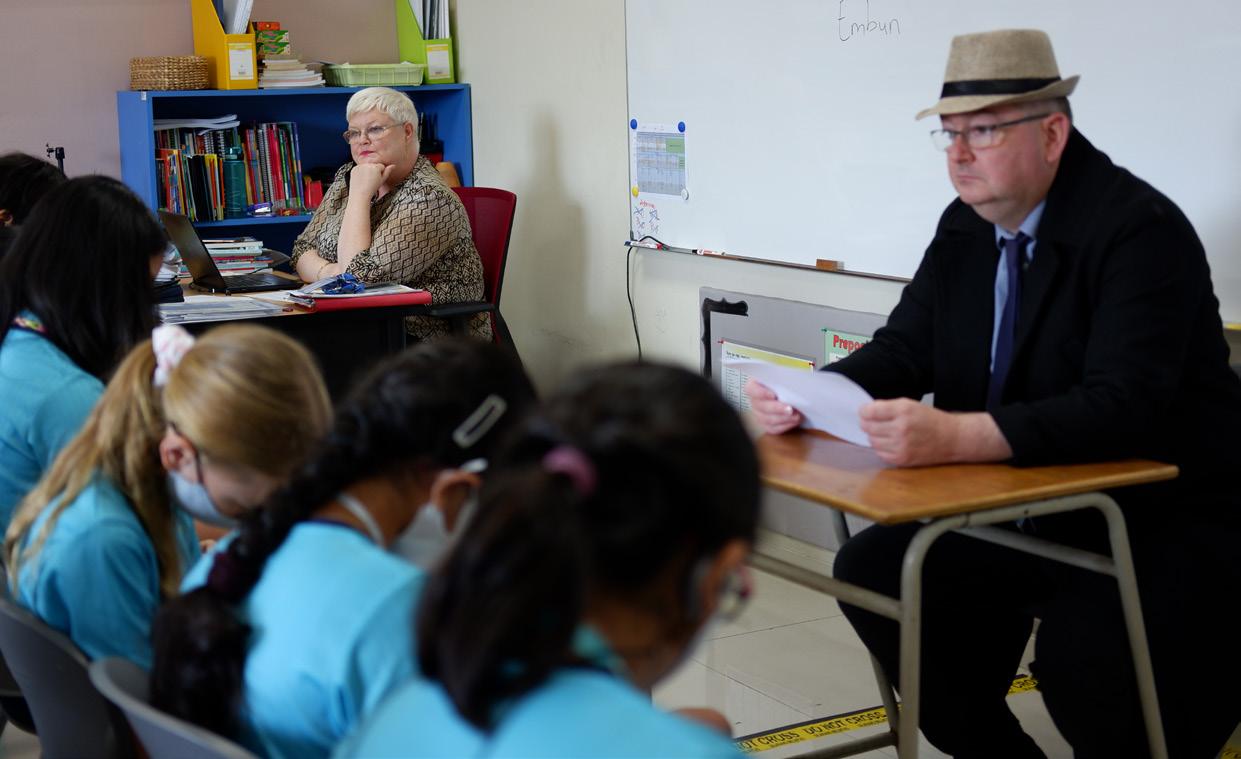
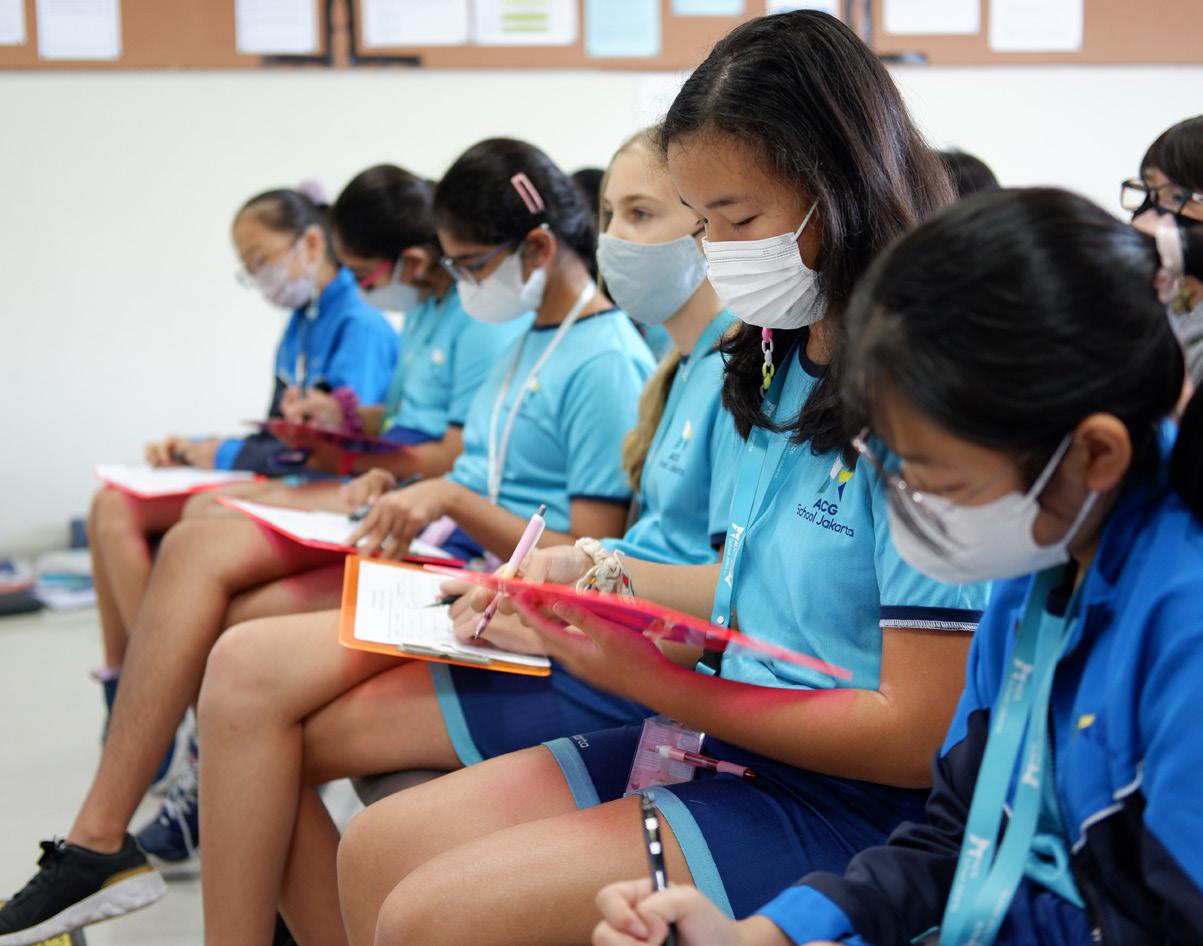


In Year 7 English students are in the middle of an investigation into the murder of the famous literary figure, Victor Frankenstein, who was found dead last week in one of our classrooms. The suspects are all ‘friends’ of the victim, namely Jane Eyre, Bob Cratchit, Mrs Johnstone, Lady Macbeth, Hamlet and Crooks. Students interviewed Inspector Lot during a press conference this week. As the investigation continues, we will explore non-fiction text, and hopefully get to the bottom of this hideous crime! See more photograph of the activity here
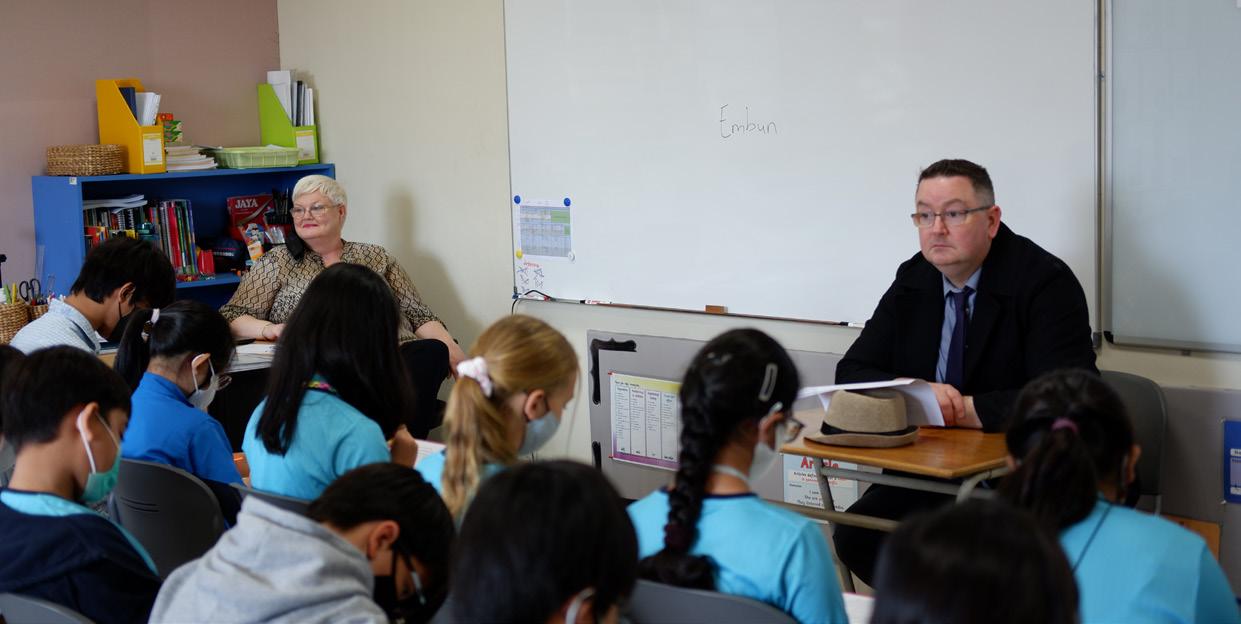

Hanzi Builder time with Year 9. Divided into two groups, each of the group aim to find the most Mandarin characters meaning they have learned throughout their study. Each group are given 2 boards: it is divided into the one they knew by heart, and the other one where they are allowed to use dictionary to help them finding the words. This is certainly helpful to get them learn how to use the online dictionary as it should and broaden their new vocabulary.
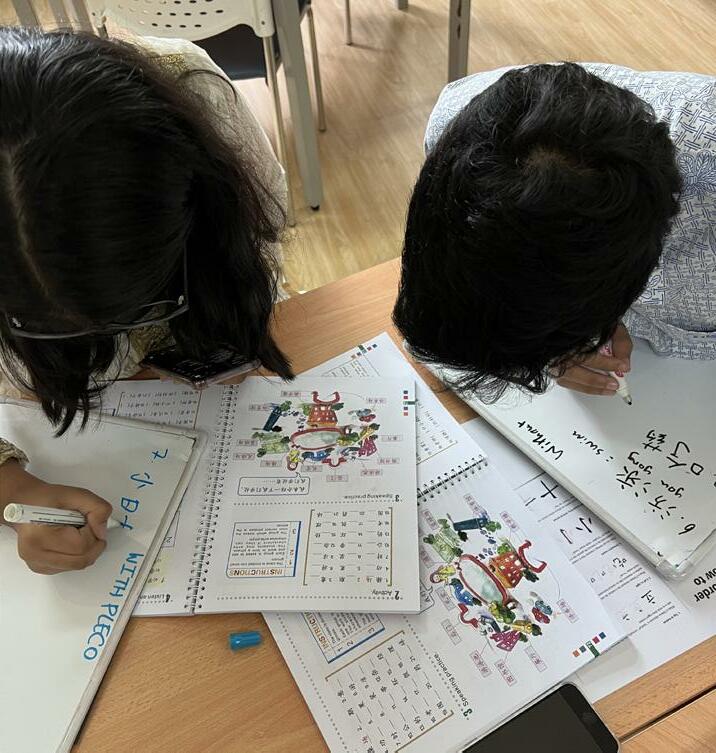
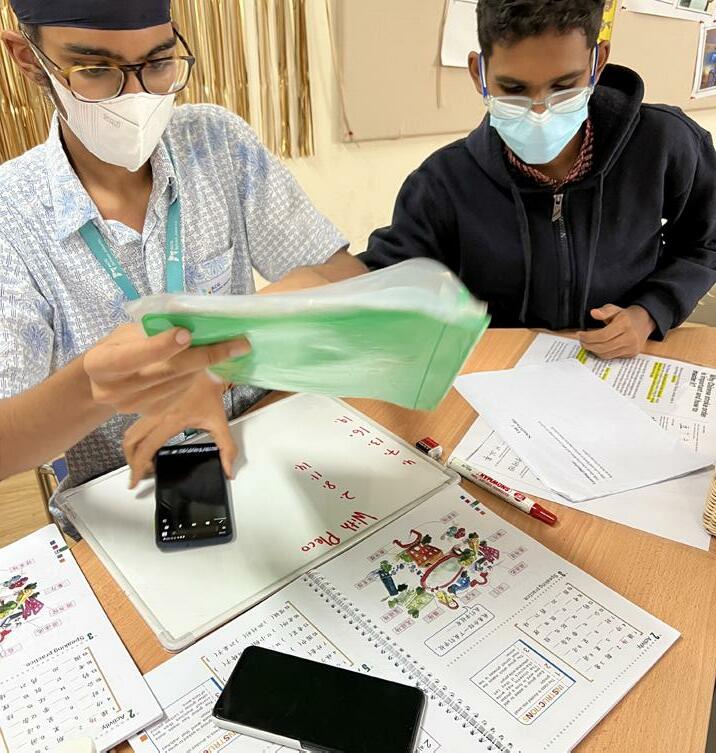
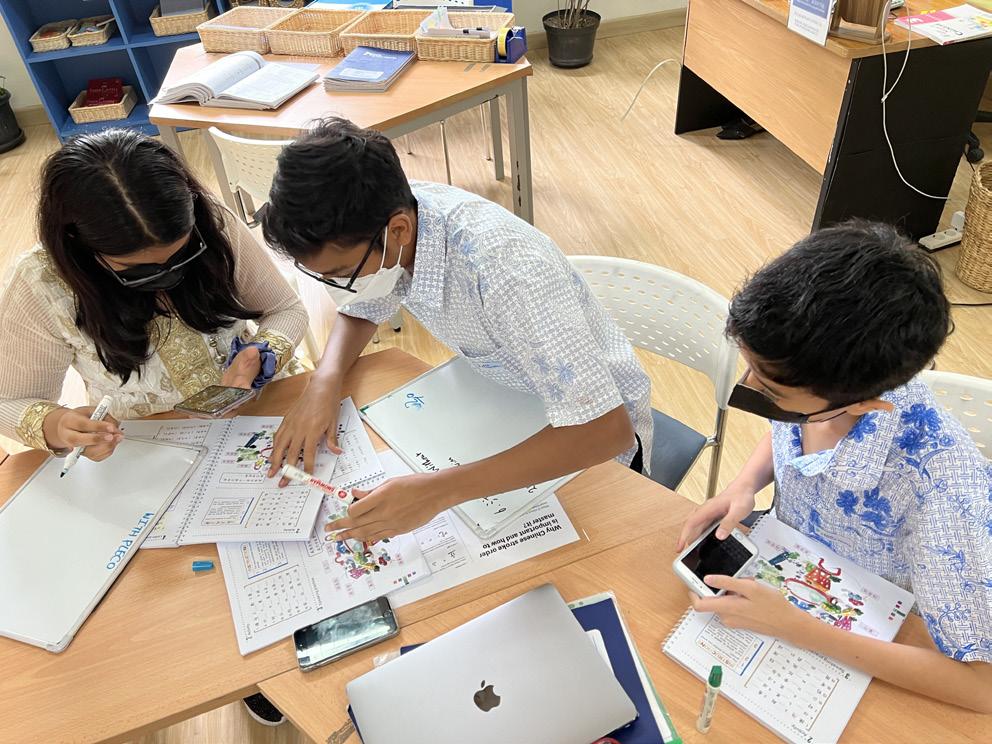
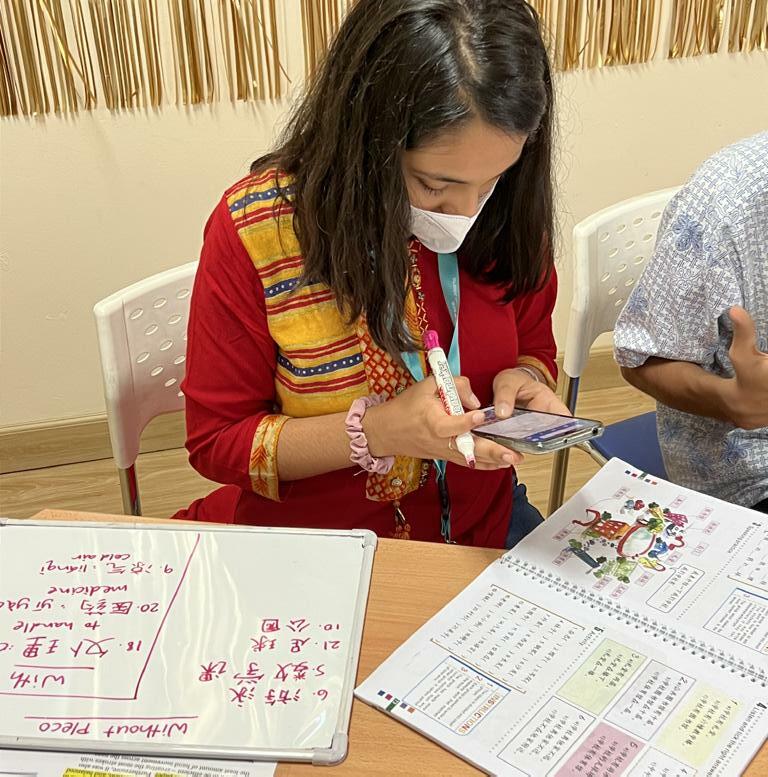
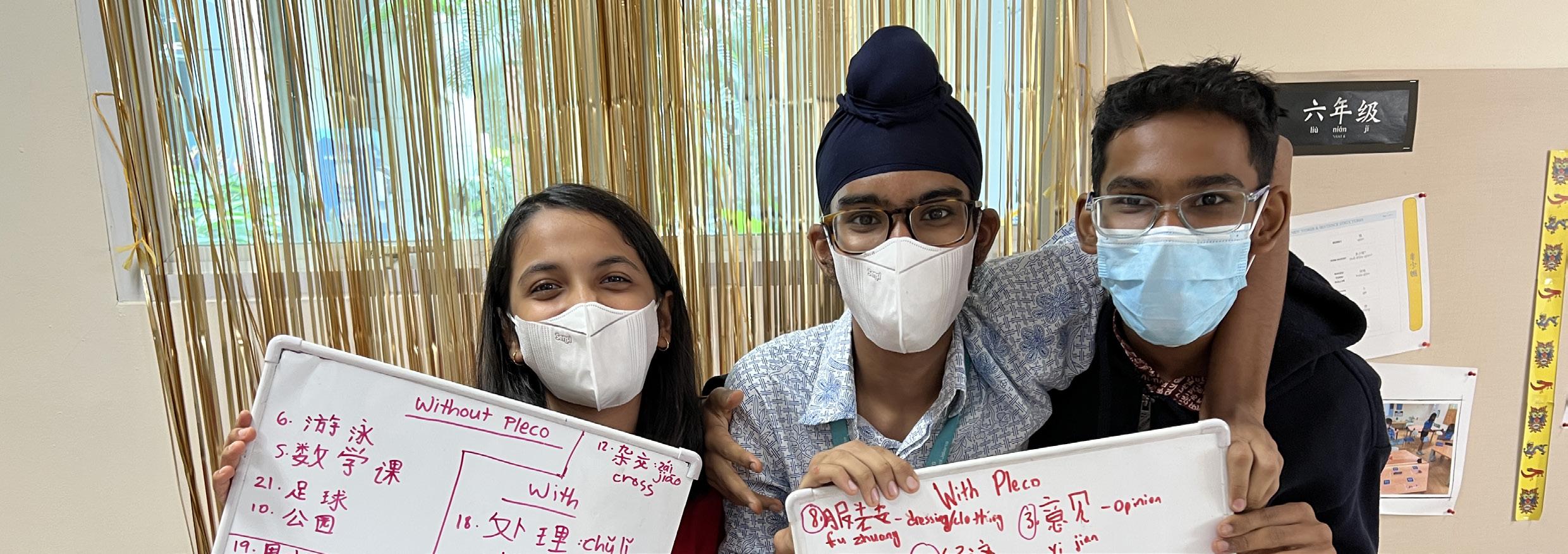
In this unit – Healthy Life Style, Year 10 IGCSE Bahasa Indonesia students have been developing their skills in procedural texts and speaking skill: focusing on imperative, conjunction and text structure. To strengthen their skills and strategies in delivering a presentation for summative assessment, they show their creativities by making a cooking demo video based on the procedural texts, they have made. The procedural text is presented at the end of each video. Here are the top 5 cooking demo videos presented by Year 10 IGCSE Bahasa Indonesia students.
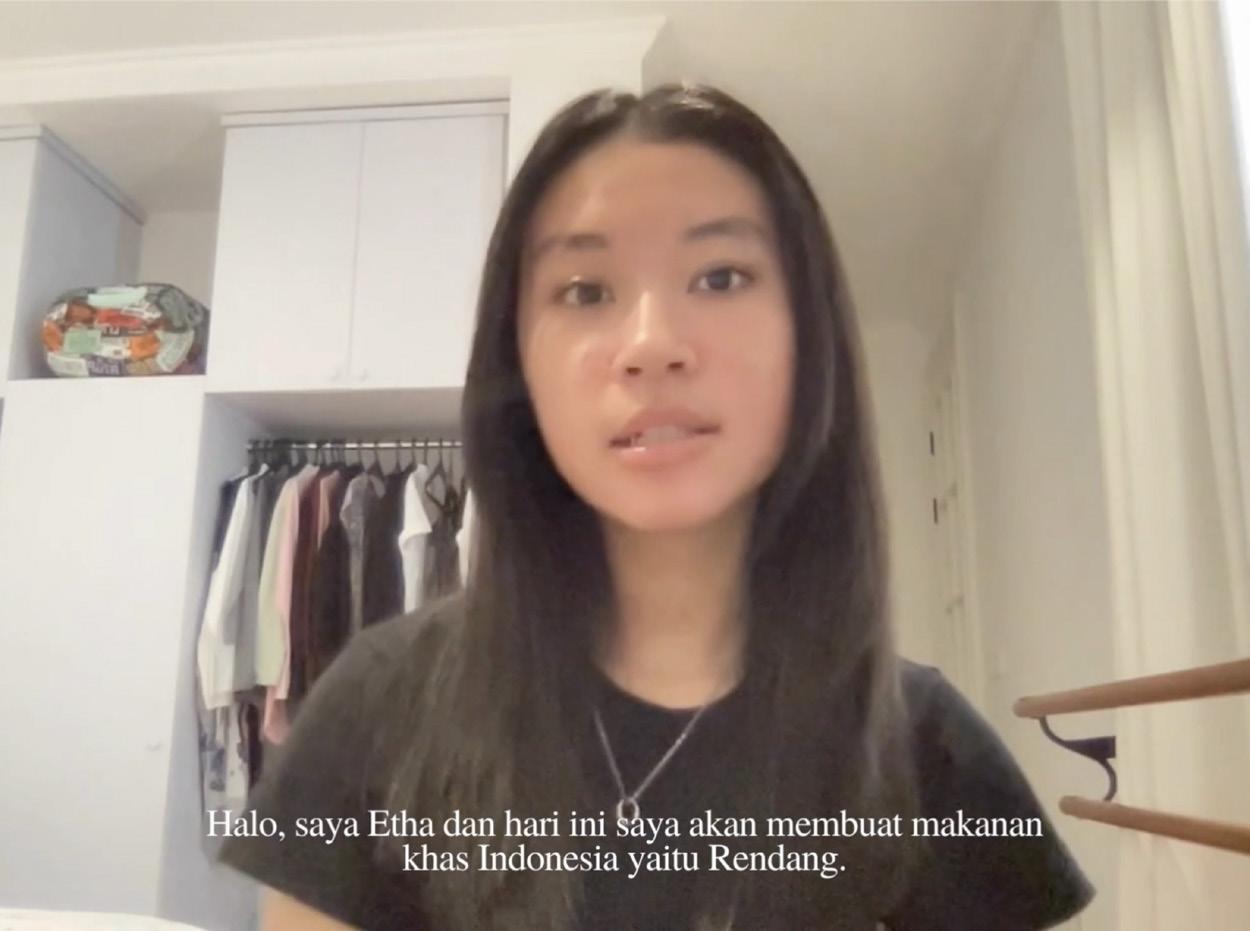

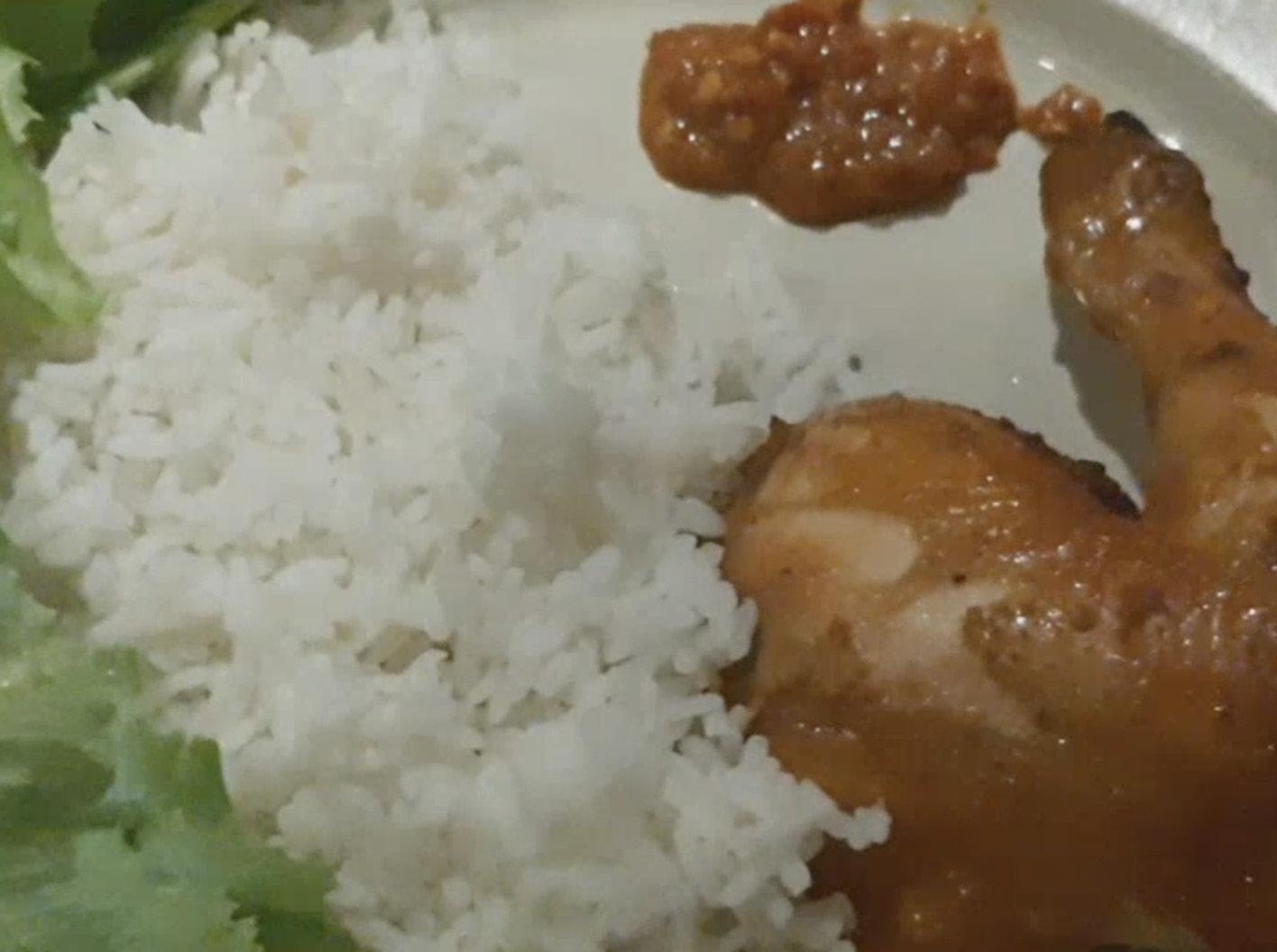

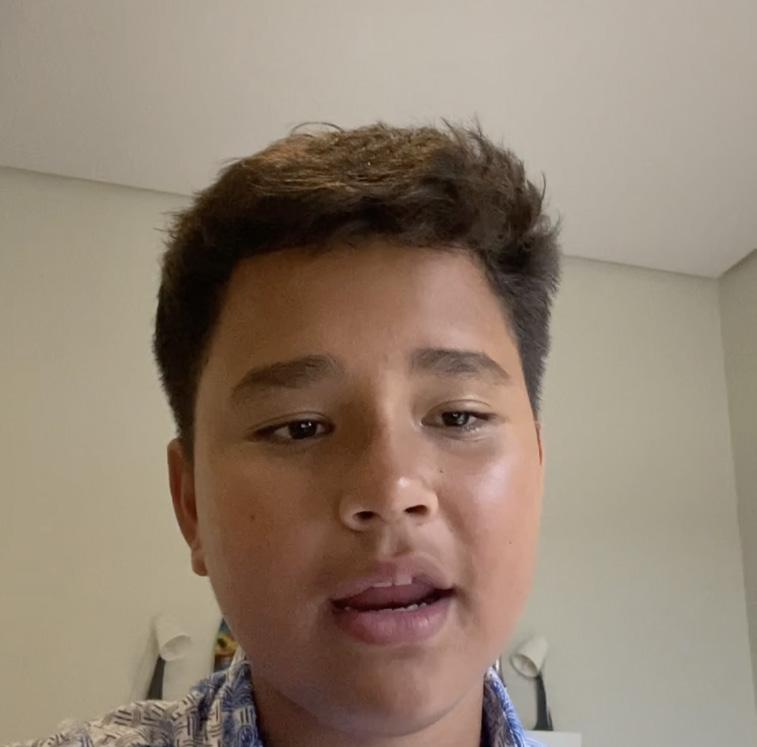

It’s been a very busy month for sports for the Wolves and Orcas. The end of October brought the end to season one and the start of season two of the athletics calendar. To wrap up their season, the senior boys soccer team played one last game versus National High on November 5th. They came away with a 1-1 draw and were very satisfied with the progress they made over the season. Also on November 5th, the junior boys and girls basketball teams played their last tournament at JIS as part of the JAMISSA league. The boys went 1-3 on the day and the girls went 0-2. The following weekend the junior boys and girls volleyball teams had their first tournament at GJS and had some terrific results. The boys team went undefeated on the day, beating GJS, SPH KV and SPH LV, and the girls also did very well, beating SPH KV and losing to GJS. Also on that day the senior boys and girls basketball teams had their first tournament at AIS. Each team went 0 -2, but with only two weeks of practice, felt happy with each of their performances. The Orcas swim team had their first team meet as part of the Jakarta Schools Swimming Competition at Bulungan Pool on November 26th. It was an excellent effort from all Orcas, and especially Lynn Rozendall, who medaled in two events. She achieved 3rd place in the 50m Butterfly and 3rd place in the 50m Backstroke. The following day, the U10 JSFL soccer team went to ISCI to participate in their grading games for the upcoming JSFL season. These games were to determine what division our U10 players would compete in, and the team did exceptionally well, and are looking forward to the start of the season in January, 2023. See more photograph of the activity here
